Education
A Legacy of Inspiration: Celebrating Prof. Merab Kagoda’s 71st Birthday and Impact on Education
Published
12 months agoon
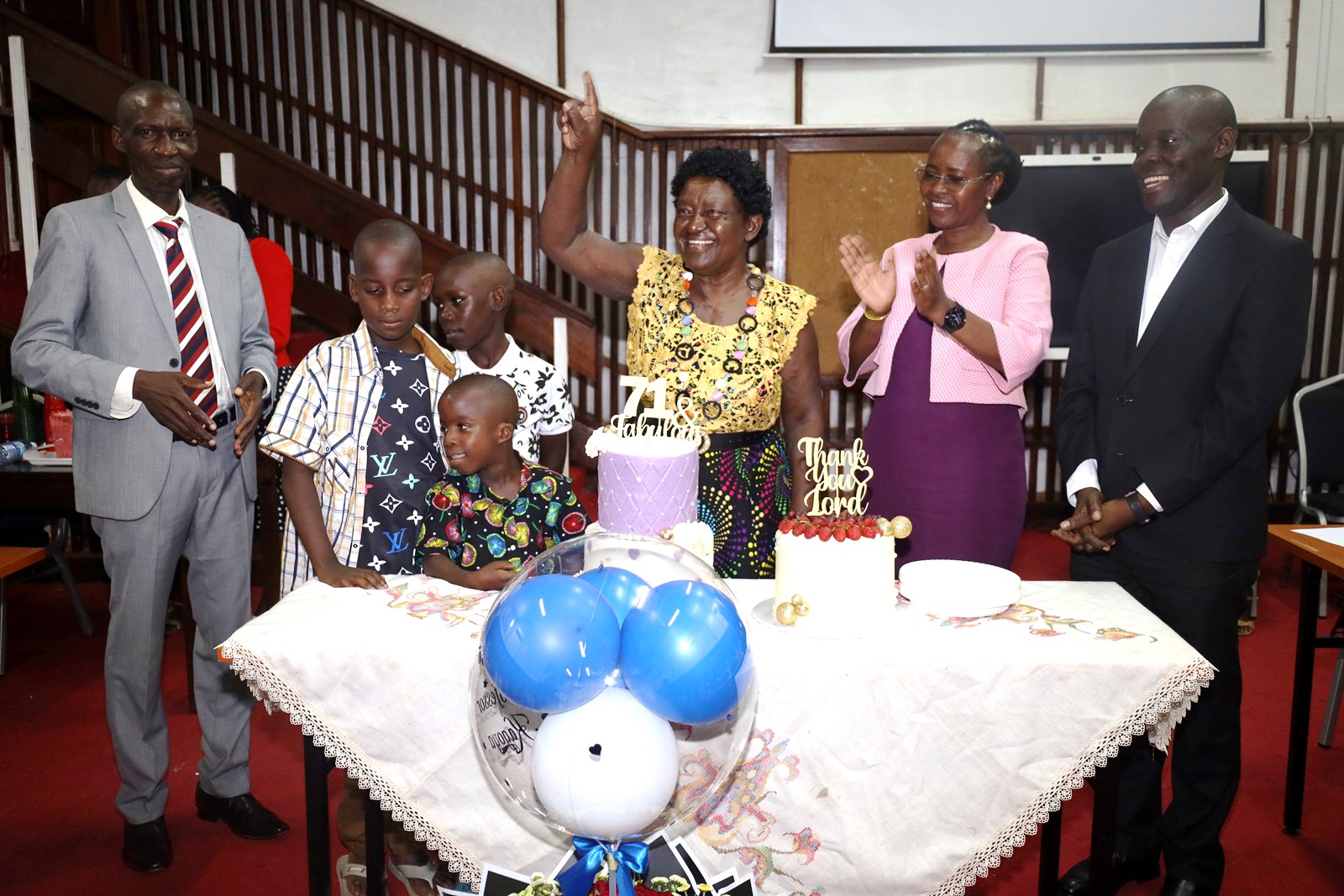
At the College of Education and External Studies (CEES), there was a buzz of excitement as faculty, staff, and students gathered to honor a remarkable figure: Professor Merab Kagoda, who recently celebrated her 71st birthday and the successful recovery from heart surgery performed in India. The event was not just a birthday party; it was a heartfelt celebration of a life that has touched so many others, both within the college and beyond.
The hall was adorned with balloons and banners, and the air was filled with laughter and music. As guests mingled and shared stories, it was clear that Prof. Kagoda’s influence had rippled across the college, creating connections that would last a lifetime. Her recovery from heart surgery added a deeper significance to the celebration, a testament to her strength and resilience.
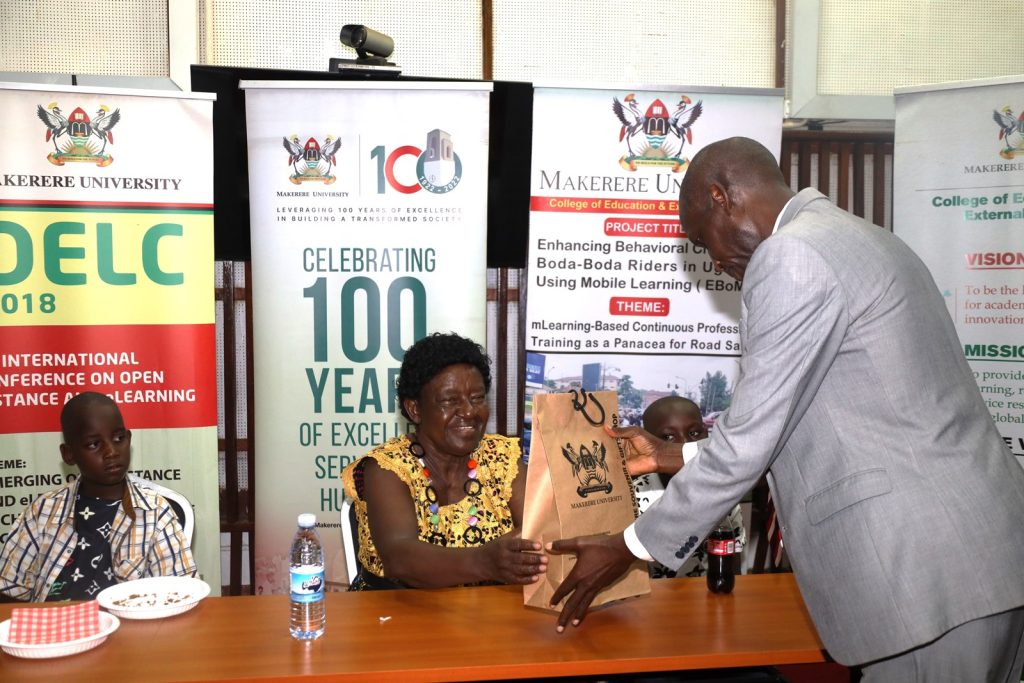
Prof. Kagoda, a respected educator and mentor, took the stage to express her gratitude to everyone who supported her through her health journey. She thanked the CEES staff for their financial and moral support during her surgery and recovery, a show of solidarity that warmed her heart. “I’m grateful to be here today, surrounded by such wonderful people,” she said, her voice full of emotion.
The college’s principal, Prof. Anthony Muwagga Mugagga, spoke warmly about Prof. Kagoda’s dedication to her work and her nurturing approach towards both staff and students. “When we were young lecturers, she would invite us to her office and offer guidance on how to conduct ourselves around students. Her advice was invaluable, and it helped us mature as educators,” he recalled. His words were met with nods of agreement from many in the room who had also benefited from Prof. Kagoda’s mentorship.
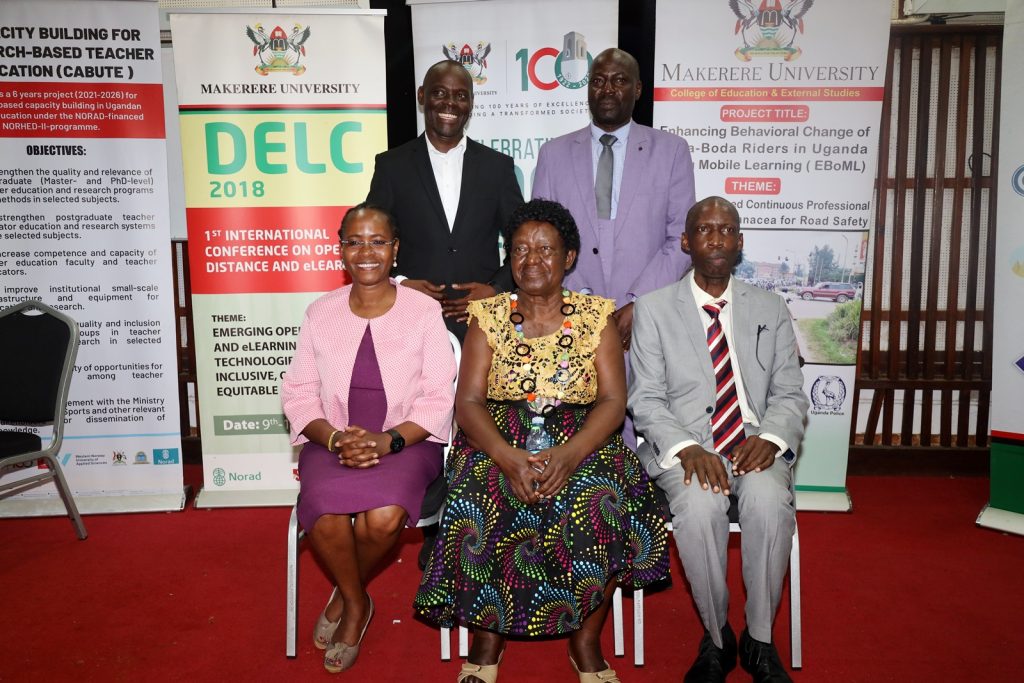
But Prof. Kagoda’s contributions extend far beyond classroom instruction. Her efforts to establish research partnerships have opened doors for many at the college. Prof. Mulumba Mathias, the Dean of the School of Education, praised her role in securing scholarships for several members of staff. “Her hard work and vision have created opportunities that will shape the future of our college,” he noted.
As the evening continued, there were more tributes to Prof. Kagoda’s legacy. Prof. Sarah Ssali, a member of the university council, shared her appreciation for Prof. Kagoda’s mentorship and for the service she and her husband, Mr. Kagoda, a former council member, had provided to the university. “It’s leaders like Prof. Kagoda who inspire the next generation of educators,” she said, emphasizing the importance of role models in academia.
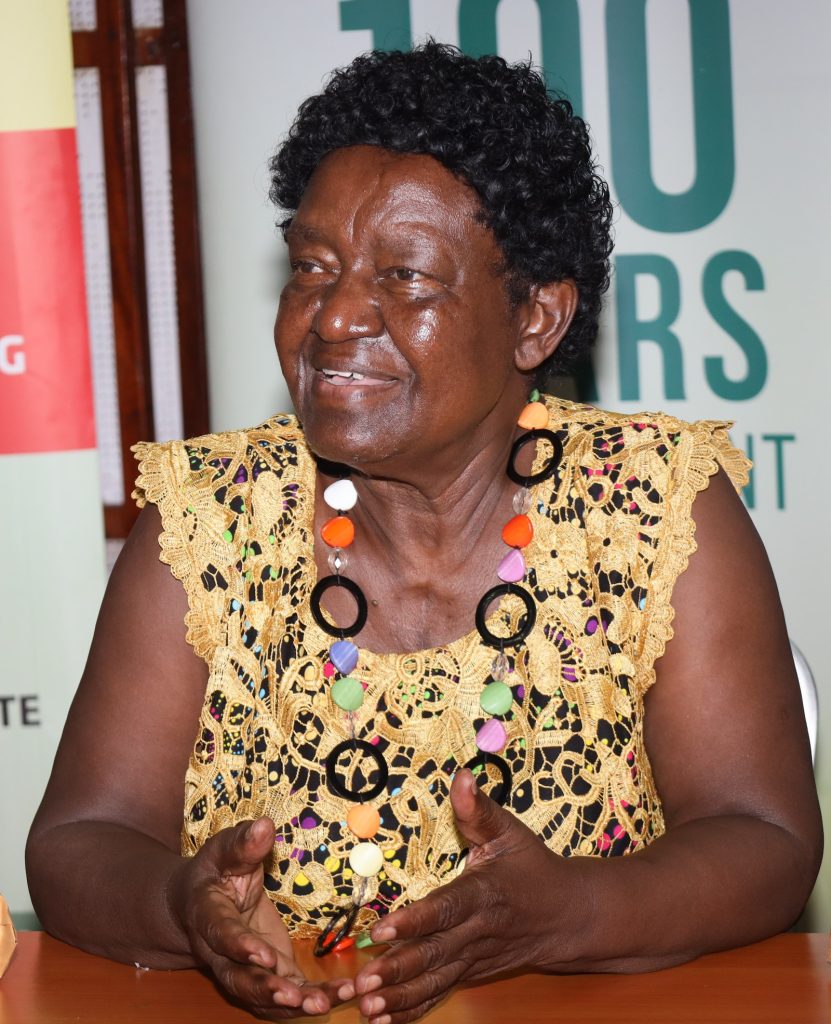
The celebration culminated in a heartfelt toast, with everyone raising their glasses to honor a woman whose life and work have been a source of inspiration and hope. As the evening drew to a close, it was clear that Prof. Kagoda’s impact would be felt for many years to come, her legacy woven into the very fabric of the college she has helped to build.
You may like
-
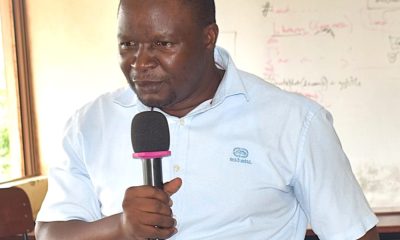

Preparing Graduates for Life after University: CoNAS Launches Terminal Seminar for Final Year Students
-
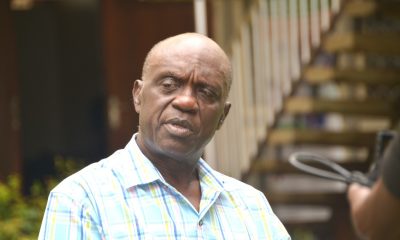

Alumni of Molecular Biology Honor Prof. George William Lubega for Outstanding Contributions
-
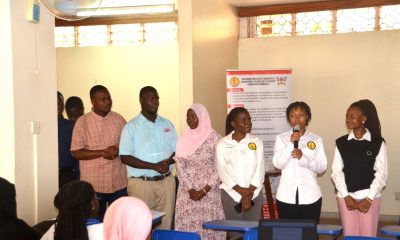

CoVAB’s MUBLISA Hosts Groundbreaking Mentorship Meeting
-
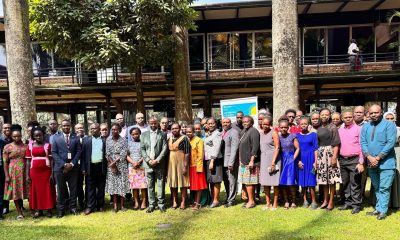

The Women RISE Project: Building Resilience among Adolescent Girls and Young Women in Artisanal Mining Communities through Transformative Research
-
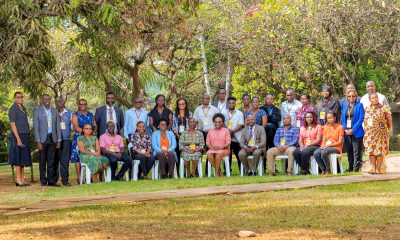

Makerere Hosts CARTA’s 11th Cohort of Doctoral Fellows
-
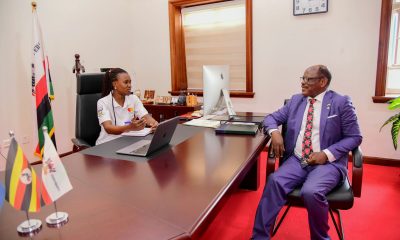

Elizabeth Gabeya’s Unforgettable Day in the Makerere Vice Chancellor’s Seat
Education
Makerere University’s Role in the Fourth Industrial Revolution: A Novel Pedagogical Approach
Published
4 days agoon
April 22, 2025By
Mak Editor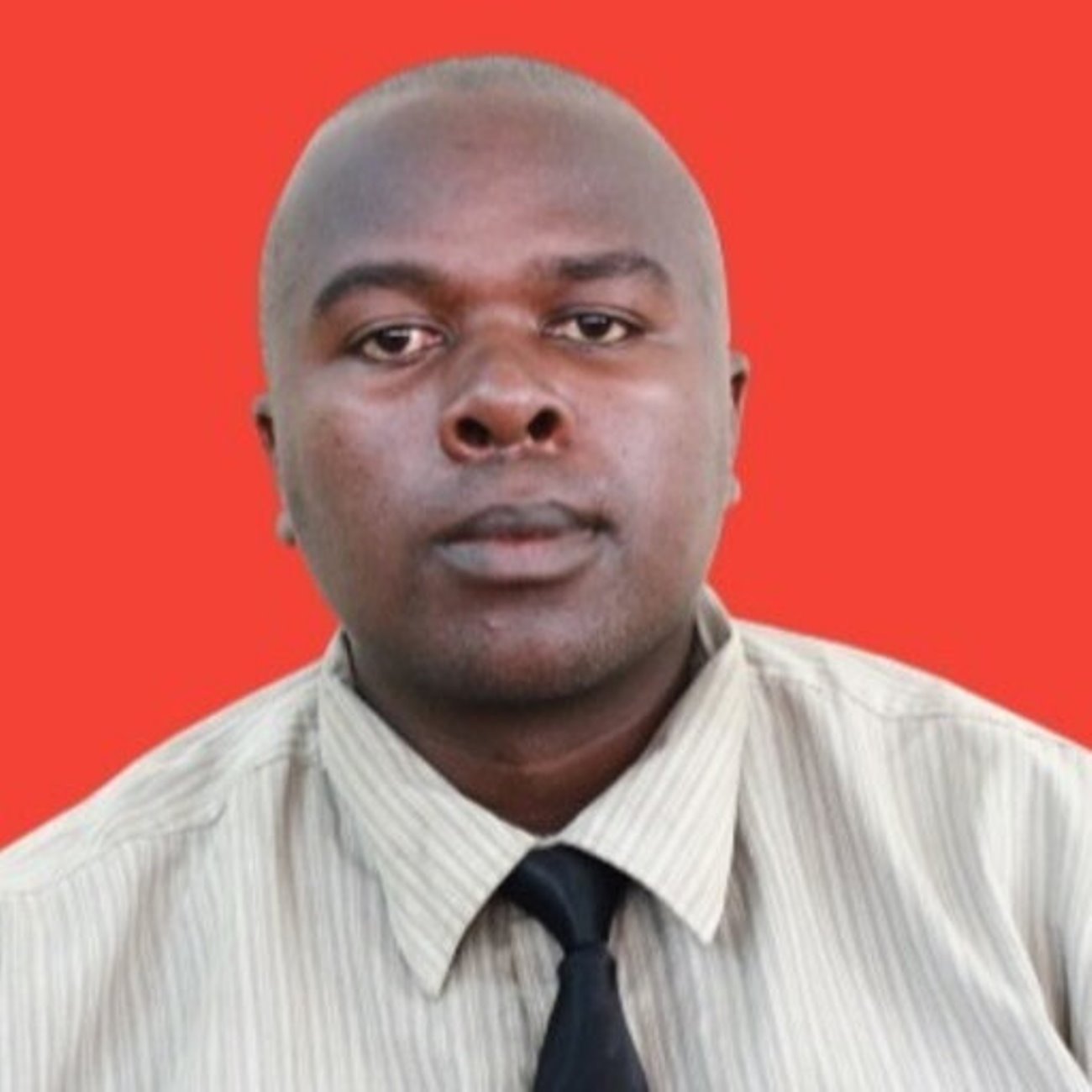
By Eutychus Ngotho Gichuru
Fourth Industrial Revolution (4IR) is revolutionizing the world economy by connecting the physical, digital, and biological worlds through technologies like artificial intelligence (AI), robotics, Internet of Things (IoT), and blockchain. For a developing nation like Uganda with long-standing problems like youth unemployment and poverty, the 4IR presents a chance to bypass development phases and achieve growth that includes all segments of society. This is attainable only if education is revolutionized, particularly in the universities.
Makerere University, which is Uganda’s national university, is well poised to drive the process. If Makerere deploys a novel pedagogy model Transdisciplinary Experiential Learning Ecosystems (TELE), it will produce 4IR leaders, innovate, and tackle local issues. TELE, which is focused on transdisciplinary collaborations, experiential learning, and exosystemic relationships, can be a key enabler of Makerere and Uganda’s 4IR readiness.
Established in 1922, Makerere University has shaped leaders who have carved out the East African future. Its traditional pedagogy framework, which is grounded in silo disciplines, rote memorization, and theory-led priority, has no match to the 4IR demands. Based on the World Economic Forum, 65% of the school children today will find themselves in careers not yet thought of and which require skills such as thinking, adaptability, and being technology literate.
In Uganda, where youth are now unemployed at approximately 13% and even underemployed, the universities must prepare the graduates with the ability to be job creators as well as job seekers. 4IR’s emphasis on networked systems, such as AI and environment, climate, and policy integration, requires a different brain. TELE offers Makerere the chance to reinvent learning so that it can leverage responsiveness to 4IR as well as Uganda’s socio-economic context.
What then is TELE? Transdisciplinary Experiential Learning Ecosystems brings together three ideas: transdisciplinary learning, experiential education, and ecosystem thinking. As opposed to multidisciplinary practices that cross between disciplines, transdisciplinary extends further to build new systems of knowledge. Experiential learning emphasizes problem-solving through practice in the real world, and ecosystem thinking facilitates interdisciplinary engagement among students, lecturers, industry, communities, and government.
TELE envisions Makerere as a vibrant node where learning overflows from lecture halls into industry and society. It is grounded on 4IR-appropriate competencies, creativity, cooperation, and agility but situates education within the Ugandan situation to make it locally responsive yet globally competitive.
The TELE system is novel yet realistic. It involves building nodes transdisciplinary in nature, both physical and virtual, where scholars from every department, engineering, social sciences, medicine, arts, join in solving issues confronting the real world. As an example, a “Smart Agriculture” lab would require students to design IoT-based irrigation, soil testing, and business plans for community ownership.
Experiential learning project work would engage students in semester-long projects, e.g., urban flooding solutions in Kampala or health access in rural areas, using 4IR technologies like AI or blockchain. Ecosystem partnerships with industry (e.g., MTN Uganda), government (e.g., Ministry of ICT), and societies would collaborate to coproduce curricula and fund projects jointly. Access to 4IR tools and far-distanced collaboration would be eased by digital solutions, with restructured assessment based on portfolios instead of traditional exams.
The future potential of TELE is to empower students with capabilities to be participants in the dynamic, networked society of 4IR. 4IR dissects industry silos, therefore a programmer writing software has to learn about user psychology, a doctor must learn AI diagnostics, and a policymaker has to balance data privacy. TELE teaches transdisciplinary learning where the students learn how to address system issues.
As an example, a TELE “Digital Financial Inclusion” project would get economics, computer science, and sociology students to co-create a block chain-based microfinance platform for rural women. This creates technical skills alongside empathy and systems thinking, both of which are critical in 4IR leadership. Unpacking disciplinary silos, TELE makes graduates adaptable as well as able to innovate in Uganda’s economy.
TELE also bridges the skills gap in Uganda, one of the persistent criticisms against its education system. Its graduates lack practical skills, making them less employable. TELE’s hands-on track sidesteps this by bringing students face-to-face with getting to do actual projects. A “Renewable Energy Access” lab, for example, could involve students to design microgrids powered by the sun in off-grid villages where they have to learn about IoT sensors, negotiate with village leaders, and pitch to investors.
These exercises produce graduates with the ability to apply 4IR technologies into practice, from creating AI-powered agriculture machinery to streamlining Kampala garbage management. By linking learning with the market needs, TELE enhances employability and entrepreneurship, the key driver of Uganda’s youth employment.
TELE also positions Makerere as an innovation and entrepreneurship hub powered by 4IR. Africa is blessed with a youth bulge, which is an entrepreneurial talent treasure trove, and the 4IR is driven by innovation. TELE embeds entrepreneurship in the curriculum through ecosystem relationships that expose the students to money, mentors, and markets.
An example of a “Smart Waste Management” initiative would involve a business owned by a student using AI to reduce the cost of garbage collection in Kampala, with the backing of entities such as Safe Boda or the Kampala Capital City Authority. By transforming its culture of innovation, Makerere can unleash an 4IR-drive tsunami of startups that will drive economic growth and make Uganda one of the top technological countries in Africa.
TELE’s localized focus is in that Makerere‘s 4IR contribution draws on Uganda’s circumstances, that is, its agrarian economy, youthfulness, and infrastructural shortcomings. Although as universal as the 4IR, solutions need to be context-specific. A “Precision Agriculture” cluster can design cheap, AI-led innovations for smallholder farmers that address food insecurity and capitalize on technologies from across the world.
Localization also renders Makerere internationally recognized as a leader in implementing the 4IR within African settings. Apart from that, TELE’s digital platform is also leveling the playing field for learning by utilizing web-based modules and virtual labs to reach rural students or students unable to access conventional schooling, as per the 4IR slogan of inclusivity.
Initiating TELE requires visionary and risk-taking leaders. Makerere can begin with a pilot, with two transdisciplinary institutions e.g., “Smart Cities” and “Digital Health” with 50 students each, backed by faculty staff and industry players. Curriculum would include TELE projects, accrediting short courses and experiential learning in 4IR skills such as coding or AI ethics. Partnership with Google Africa would offer finance and skills, with support from digital infrastructure such as a virtual 4IR Lab enabling virtual learning. Next, Makerere would move to the phase where there would be replicated centers, the faculty trained in transdisciplinary practice, and cutting-edge policy reform to embrace TELE-based evaluations as a vehicle for inducing long-term sustainability.
Makerere University stands at a crossroads. The 4IR requires a new kind of graduate who is flexible, creative, and can handle complex systems. With the adoption of Transdisciplinary Experiential Learning Ecosystems, Makerere can re-engineer its pedagogy to meet these needs in order to prepare graduates to drive Uganda’s 4IR. TELE focus on transdisciplinary collaboration, experiential learning, and ecosystem partnerships aligns with bridging the skills gap, encouraging entrepreneurship, and domesticating foreign technologies. While Uganda seeks to capitalize on the 4IR to achieve inclusive growth, Makerere‘s embrace of TELE can also position it as a beacon for innovation inspiration in Africa, whose destiny to learn maps the course into progress and prosperity.
Eutychus Ngotho Gichuru is a Doctoral Student at College of Education and External Studies, at Makerere University.
Education
Inclusive education: Using assistive technologies to manage the learning needs of students with visual impairments at Makerere and Kyambogo Universities
Published
1 month agoon
March 19, 2025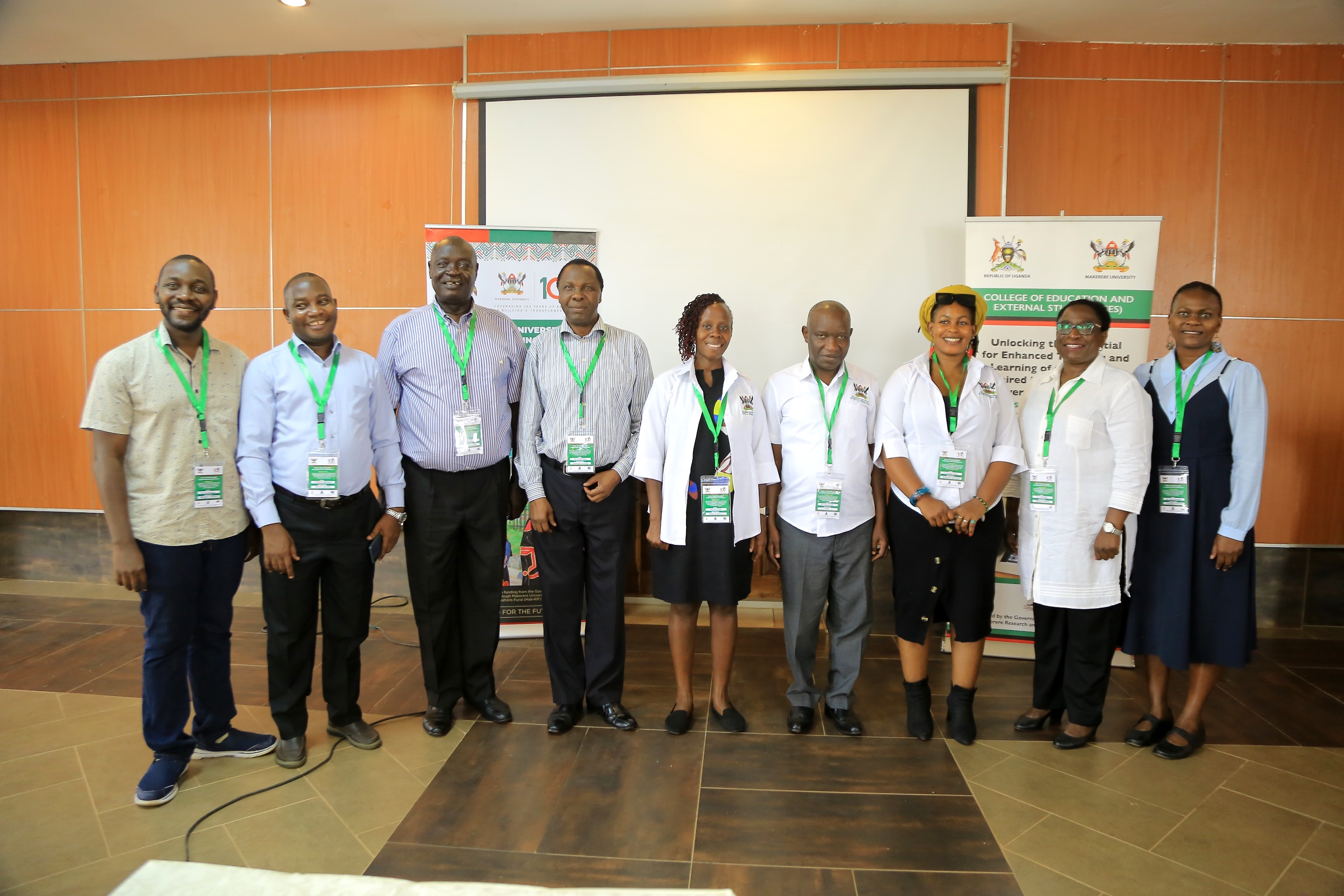
Over 80 academic staff at Makerere University and Kyambogo University have been trained under a five-year project designed to enhance the teaching and learning of visually impaired students in Uganda, through the use of assistive technologies. In addition, 100 university students with visual impairments have also been trained and supported. An online course titled, “Supporting Learning of Students with Visual Impairment” was developed. There is increased awareness and understanding at Universities of the needs of learners with visual impairments.
With this support, the College of Education and External Studies at Makerere University secured some specialized equipment and assistive technologies for research as well as facilitating usage and access to these devices by students with visual impairments.
Inclusive education is based on the premise that all children, regardless of their social, cultural, physical and mental (UNESCO, 2009) conditions should learn together (UNESCO, 2014). As a philosophy, inclusion urges training institutions to welcome, value everyone, and minimize barriers to accessing quality education and ensuring effective participation in learning experiences by all learners (Morina, 2017).
Globally, ICT is increasingly being used to improve the learning and independence of students with visual impairments (Gill, Sharma & Gupta 2017).
The project team consisting of staff from Makerere University College of Education and External Studies, Kyambogo University, National Council for Higher Education and Uganda National Association of the Blind noted that the preparedness of public universities in Uganda to provide education to students with visual impairments was still wanting. The research team noted that available studies indicated evidence of discrimination, an unsupportive teaching and learning environment, negative attitudes, inappropriate infrastructure and unprepared academic staff.
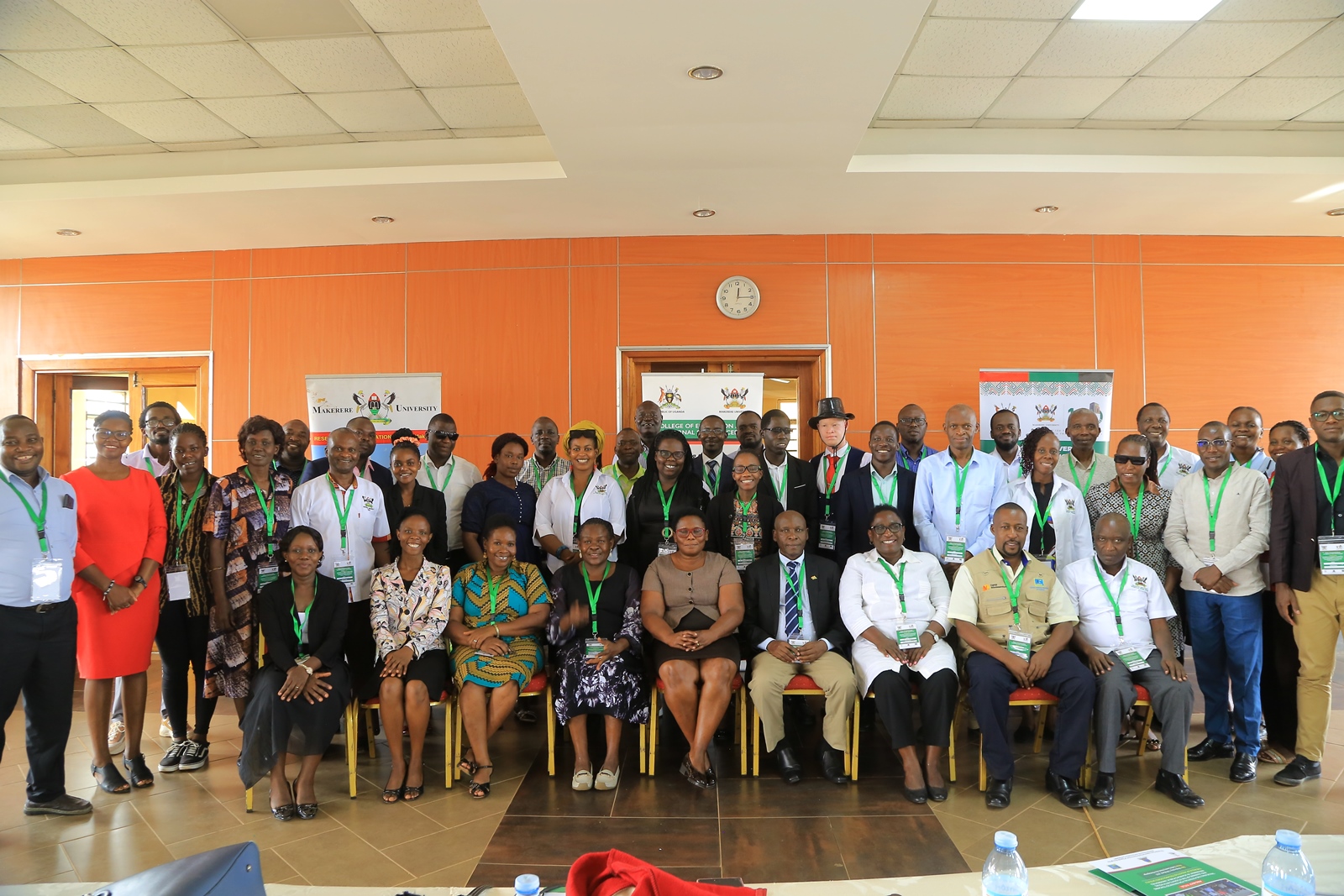
With funding from the Government of Uganda through Makerere University Research and Innovation Fund (MakRIF), a research project titled, Unlocking the Potential for Enhanced Teaching and Learning of the Visually Impaired in Uganda’s Public Universities: The Role of Assistive Technologies-(ATEVIL) was designed to address the challenge of limited awareness and capacity by public universities to support the teaching of students with visual impairments.
Since 2020, the research team has been implementing the ATEVIL project aimed at supporting students with visual impairment by strengthening educators’ capacities and enhancing educational accessibility.
At the stakeholder’s dissemination workshop held on 12th March 2025 to assess the five-year application of the ATEVIL project, the participants unanimously agreed that assistive technologies are key in helping the visually impaired students close the learning gaps.
The research team consists of the following members: Dr. Leah Sikoyo, Associate Professor Betty Ezati, Dr. Dianah Nampijja, Dr. Michael Walimbwa, Associate Professor Joyce Ayikoru, Mr. Daniel Okot, Dr. Godfrey Onyait and Mr. Ronald Luyima.
Dr. Leah Sikoyo, the Principal Investigator of ATEVIL Project
Presenting the situation analysis, Dr. Leah Sikoyo, the Principal Investigator-ATEVIL project indicated that the number of learners with visual impairments enrolling for university education has been increasing amidst limited capacity by teacher educators to effectively manage their learning needs.
Dr. Sikoyo attributed the rise in the number of students with visual impairments accessing university education to the awareness and sensitization efforts by the Government of Uganda, Ministry of Education and Sports, parents, the Uganda National Association of the Blind and other stakeholders.
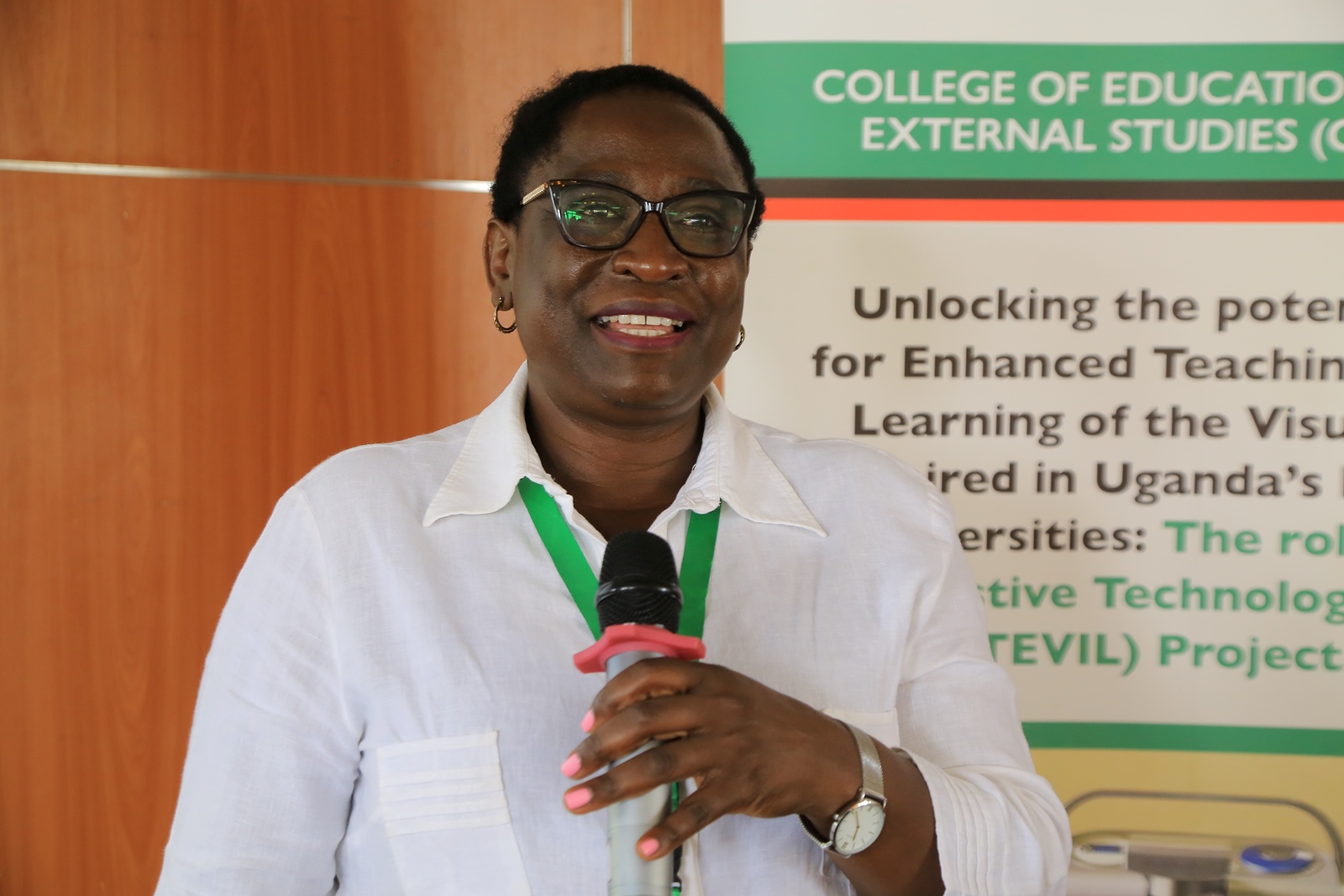
She disclosed that although at Makerere University, most of the students with visual impairments enroll for academic programmes in the humanities, social sciences, education, law and business, at the global level, where assistive technologies are accessible, they empower the learners with visual impairments to study a wide range of courses in the sciences, medicine, engineering and among others.
Using a very common scenario, Dr. Sikoyo who is an academic member of staff at Makerere University-College of Education and External Studies, mentioned a critical issue in the existing educational framework. She pointed out that most of the teaching staff unconsciously use this statement when teaching, and I quote: “Dear students, do you see this?” This inherent bias towards sighted students results in significant barriers for those with visual impairments. The lack of awareness and training among educators has led to inadequate support mechanisms, leaving students with visual impairments feeling isolated and ignored, especially during crucial assessment periods. She added that in some situations, academic staff would establish that some students have visual impairments during tests or towards the examinations period.
In response to these challenges, the ATEVIL project integrates assistive technologies to foster an inclusive learning environment. “Technology enables flexibility. It provides possibilities to adapt to the learning environment. Students can work not just with ease, but also with independence,” stated Dr. Sikoyo. She stressed that this approach not only empowers students to access information independently, but also shifts the educational paradigm towards a more equitable system.
The ATEVIL project’s innovative strategies encompass not just hardware and software, but also methodologies that cater to different learning needs, enabling educators to create a supportive environment for all students.
With the ATEVIL project success, its implications extend beyond the classroom, serving as a contact of hope for a more inclusive Uganda and fostering awareness and training among educators, the initiative hopes to maximize the potential of all students, regardless of their disabilities. It is hoped that, by addressing the systemic challenges faced by visually impaired students, this initiative is not just changing lives; it is redefining the future of education in Uganda.
Remarks by Representative of MakRIF
Representing Prof. Fred Masagazi Masaazi, the Chairperson of the MakRIF Grants Committee, Dr. Zahara Nampewo, the Deputy Principal, School of Law at Makerere University stated that true vision goes beyond physical sight, and this project aims at helping visually impaired students to see with their minds.
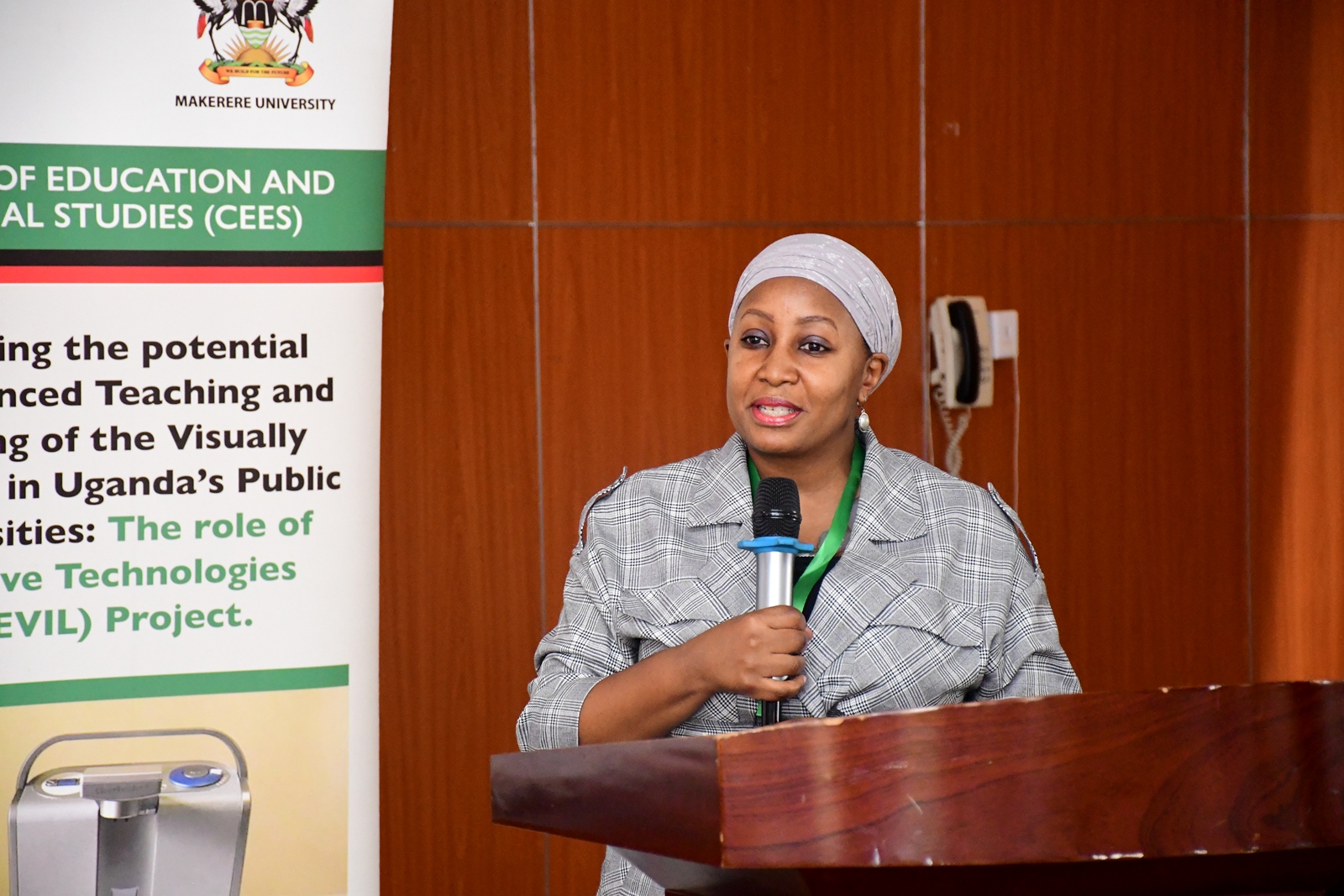
Dr. Nampewo commended the project team for their innovative approach towards inclusive learning for visually impaired students, noting that it has transformed the lives of learners and positively influenced government policy.
“In addition to learners with visual impairments, I implore the ATEVIL project team at Makerere University, Kyambogo University and National Council for Higher Education, to consider students with hearing and mental disabilities. I encourage you to expand the scope of this project to achieve even greater impact and actionable results,” said Dr. Nampewo, a Member of MakRIF Grants Management Committee.
Remarks from National Council for Higher Education
Participating in the stakeholder’s dissemination workshop, Dr. Olive Lunyolo, a Senior Education Officer at NCHE re-affirmed Government’s commitment to promoting inclusive learning across all educational institutions.
Dr. Dianah Nampijja presents impacts and outcomes
Dr. Nampijja said: “When we started this journey, it was a journey of not knowing things to do. As we have walked through, we have increased awareness on inclusive learning. We needed our students to be independent. We didn’t want to pity them. The goal is to equip the learners to thrive in competitive work environment.”
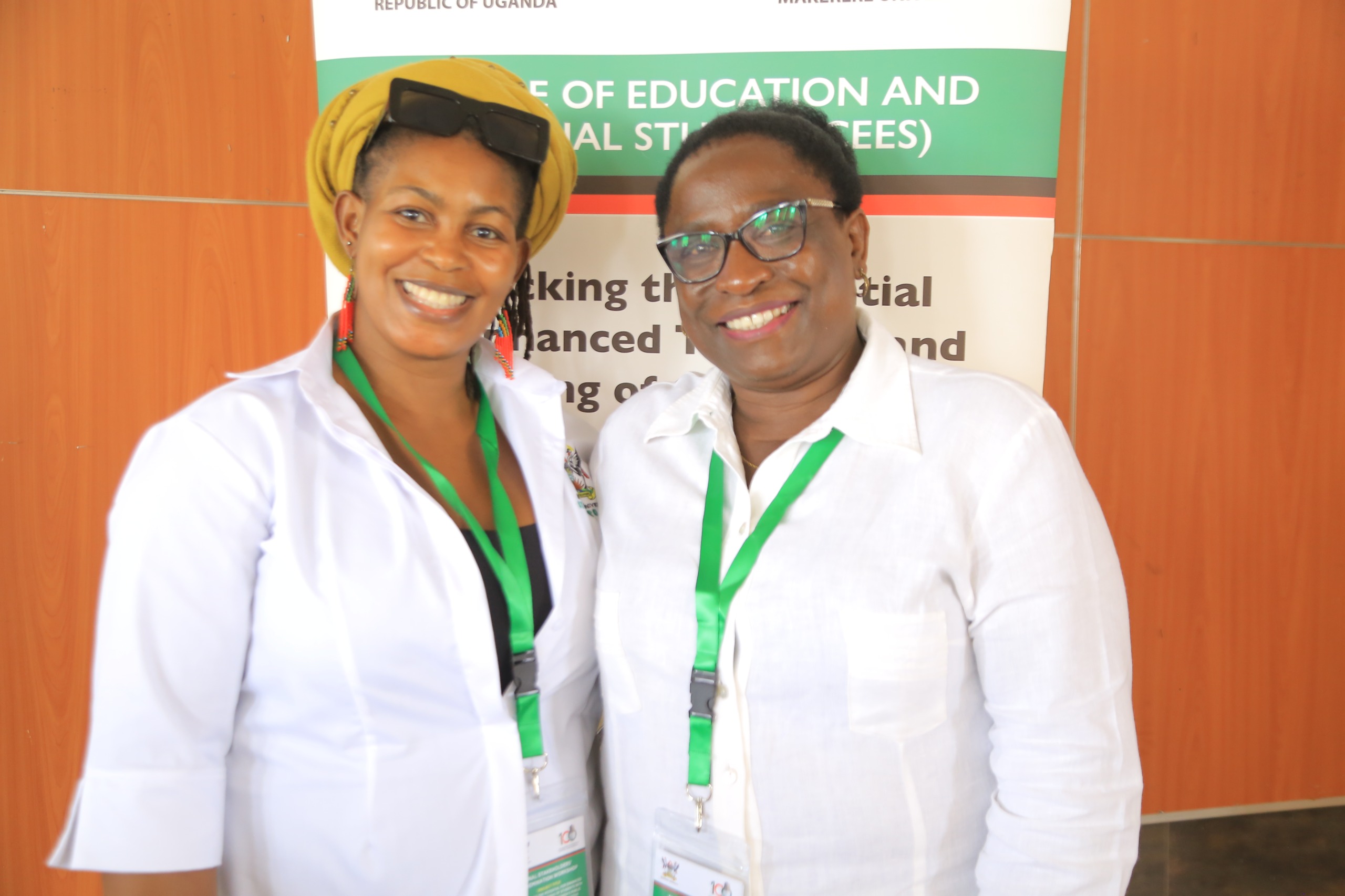
The ATEVIL project gathered insights into the lived experiences of students with visual impairments, ensuring that their needs were met comprehensively. According to Dr. Nampijja, the ATEVIL project presented possibilities. The project research implementation team focused on presenting possibilities to learners with visual impairments. “Assistive technologies are part of those artifacts that allow these possibilities,” she said.
She noted that by focusing on assistive technologies, the ATEVIL project made learning more accessible. “The initiative addressed gaps in the learning management systems, allowing students to navigate these platforms effectively,” she remarked.
Highlighting the importance of continuous professional development, Dr. Nampijja reported that through the ATEVIL project, 80 academic staff across Makerere and Kyambogo Universities were successfully trained in inclusive teaching strategies and assessment methods tailored for students with visual impairments.
Contribution from Makerere University Disability Support Unit
Ms Elizabeth Rwabu who manages the Makerere University Disability Support Unit mentioned that that she has been engaged with disability advocacy since childhood. “You should never allow the disability to define you. Accept your circumstances, but remember, you are not defined by them,” she advised. According to Ms Rwabu, this is a notion that the true challenges are not solely in the impairments themselves, but in the societal barriers that inhibit full participation in daily life. She noted that, ‘Barrier plus impairment equals disability.’ She explained that by dismantling barriers, be it physical, social, or systemic, individuals can reclaim their agency.
Contribution from the Makerere University Dean of Students’ Office
Mr. Peter Mwanja from the Office of the Dean of Students at Makerere University guided as follows: “In addition to providing accommodation to students with disabilities, we need to ensure that they are actively included in all aspects of university life. This includes sports and extracurricular activities, which are vital for social integration.”
Feedback from participants at the Stakeholders Dissemination Workshop
During the plenary session, participants observed that the disability will be broken when you remove the barriers preventing access to what you are meant to do. They commended the ATEVIL project which aims at addressing these barriers head-on for providing practical solutions that are changing perceptions and outcomes within the community.
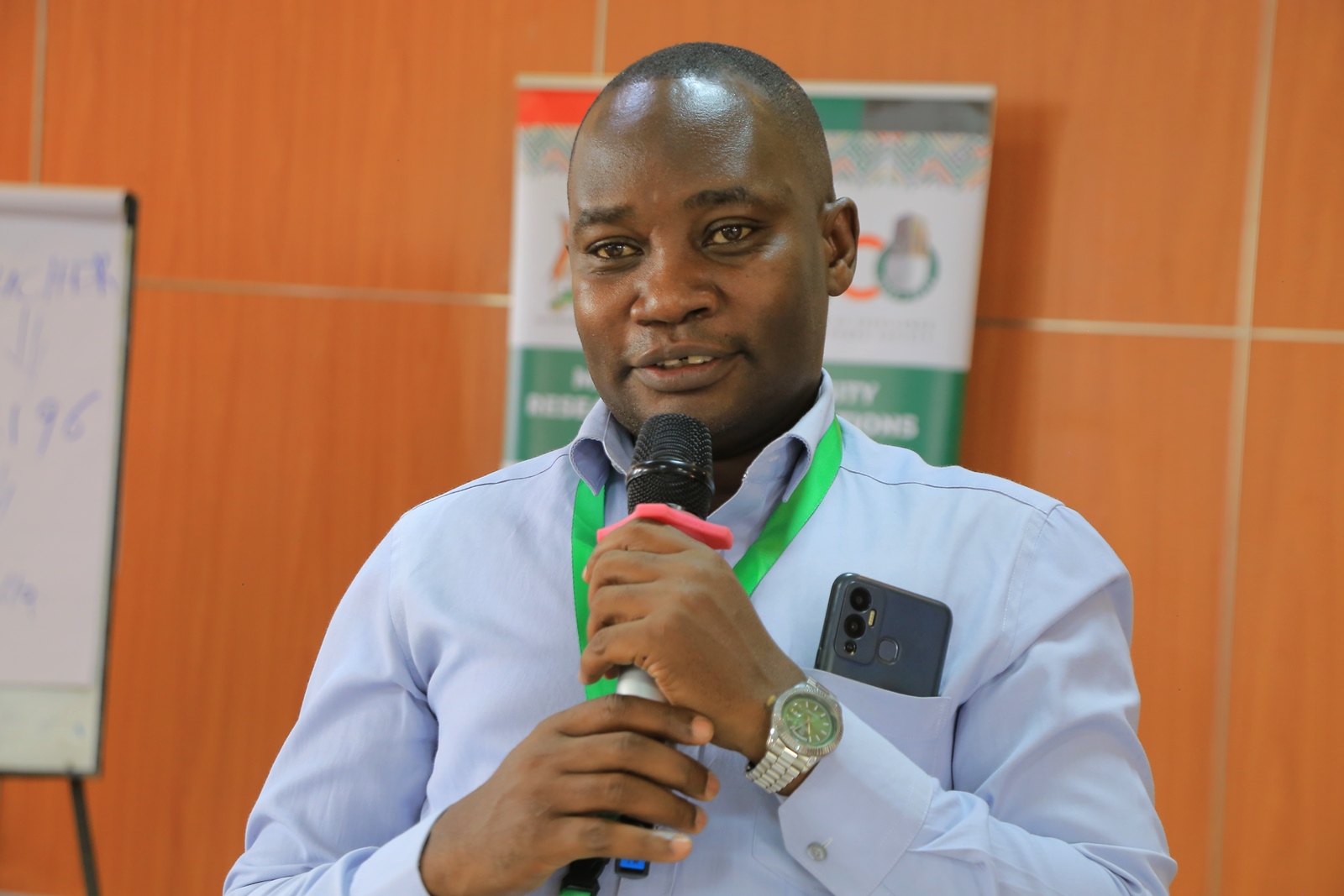
The participants underscored the need for teachers and staff to receive training on disability awareness and inclusivity. They also noted that while some progress has been made, many university facilities are still lacking essential features such as ramps and accessible restrooms.
The stakeholders advocated for policies that support and empower students with visual impairments as well as increased support from the Ministry of Education and Sports in form of funding specific to the needs of students with visual impairments, specialized equipment and assistive technologies.
Testimonies from academic staff trained during the ATEVIL project
Dr. Zaid Sekito, Makerere University
Dr. Zaid Sekito, an academic staff member at Makerere University College of Humanities and Social Sciences and a beneficiary under the ATEVIL Project, reflected on his transformative two-year journey since joining the initiative. “I have learned how to deal with students with visual impairments. I am very sensitive when it comes to inclusion of learners with different abilities as well as on the choice of words and terminologies,” he shared.
Convinced that true empowerment requires equitable educational opportunities, Dr. Sekito advocated for a shift towards “multi-diversity universities” that embrace modern technologies to support diverse learners.
He highlighted the need to create more ambassadors advocating for comprehensive training for staff to address the special needs of our students effectively.
Dr. Jackie Adong, Makerere University
Dr. Jackie Adong, an academic staff member at Makerere University College of Humanities and Social Sciences and a beneficiary of the ATEVIL Project shared her transformative journey in supporting students with visual impairments. She elaborated that being sensitive to the needs of students with visual impairments is a reminder of our responsibility as human beings to fellow human beings. Dr. Adong highlighted the rights of students with visual impairments, emphasizing their entitlement to education, participation, and access to resources.
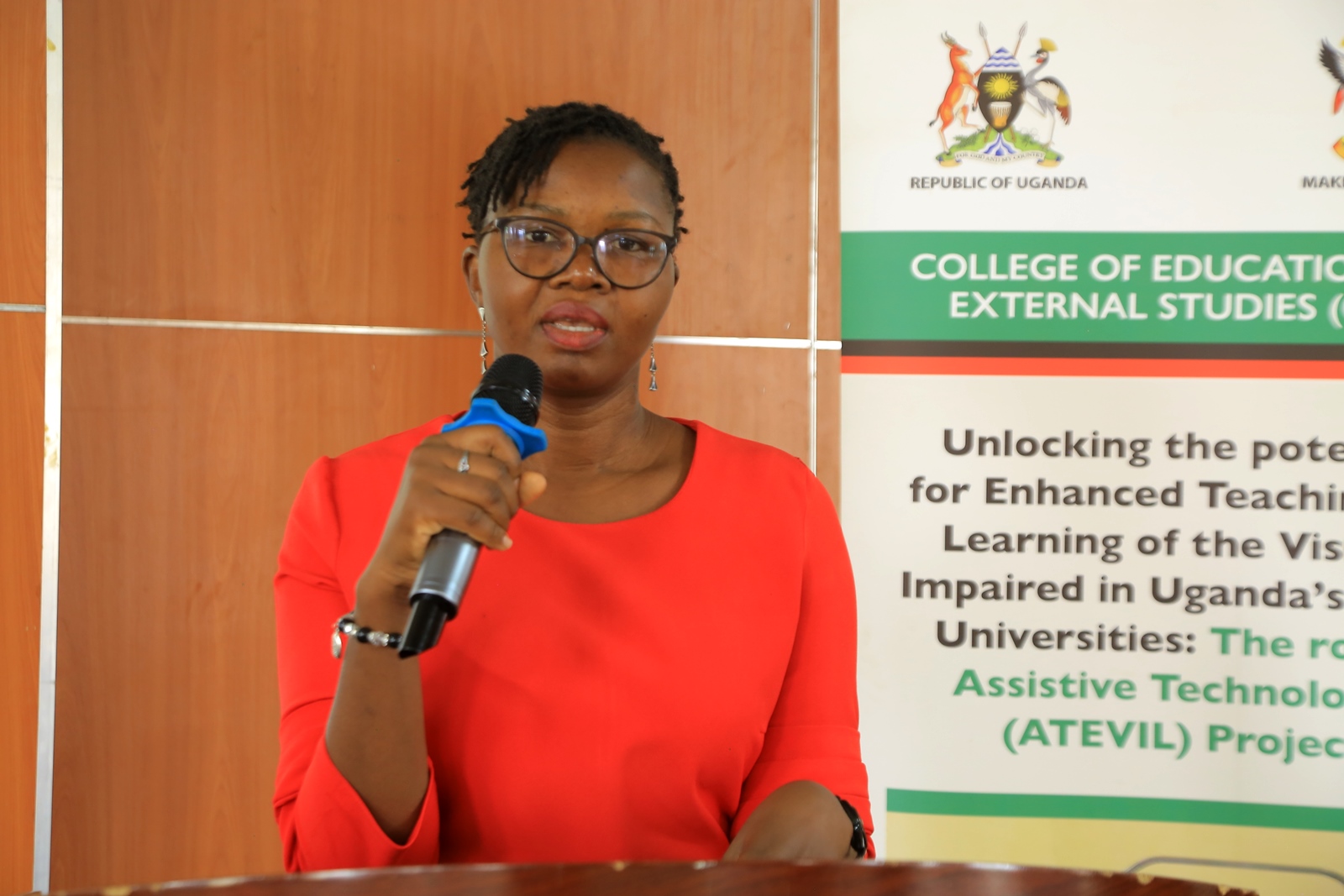
She has adapted to alternative teaching methods by posting class notes on WhatsApp and allowing students to utilize assistive technology for reading. “Now we are aware of them from the beginning of the class, during coursework and during exams,” she said, detailing how the Department of Literature at the College of Humanities and Social Sciences has created a supportive environment. Dr. Adong is committed to continuing these inclusive practices to ensure a brighter future for all students.
Dr. Asio Santamaria, Kyambogo University
Dr. Asio Santamaria, the head of the Department of Biological Sciences at Kyambogo University and a beneficiary of the ATEVIL Project, highlighted the significant impact of the initiative on her teaching approach and awareness of students with visual impairments.
Reflecting on her experience, she pointed out, “Observation has helped us recognize students who may appear physically fine, but require special attention.” Dr. Asio emphasized the need to accord extra time for coursework and exams to students with visual impairments. She credited the ATEVIL project for enhancing her knowledge of modern assistive technologies and inclusive teaching strategies.
Enock Kisekka, Kyambogo University
Enock Kiseka, an academic staff member at Kyambogo University and beneficiary of the ATEVIL Project, shared his transformative journey in supporting visually impaired students. He disclosed that initially, he did not understand fully the challenges faced by students with visual impairments.
His perspective changed after participating in inclusive training. Kiseka emphasized the importance of intentionality, stating, “I became more aware of students with low vision and learned to provide appropriate support, such as extra time during assessments.”
His engagement with the Disability Support Centre led to collaborative efforts to create a more inclusive environment. “We have developed a strong relationship with the special needs faculty,” he added, underscoring the collective responsibility in enhancing accessibility.
Students’ Testimonies
Awilo Mariam, a student at Makerere University and beneficiary under the ATEVIL Project, shared her experience, stating, “Before the training, I struggled with using the Moodle portal, but now I can type my notes and exams confidently.”
She emphasized the power of empathy, urging, “Treat everyone simply; life can change in an instant.” Awilo expressed gratitude for the support from her lecturers, acknowledging their crucial role in her educational journey.
Paul Kakooza, a student at Makerere University and beneficiary under the ATEVIL Project, expressed profound gratitude for the initiative’s impact on students with visual impairments. According to Kakooza, the ATEVIL project has yielded results, empowering visually impaired students to navigate technology and advocate for their needs.
Kakooza also reported on the transformation in his ability to access information. “We are now able to navigate our phones and the Internet, which was once a challenge for many of us,” he mentioned. He pointed out the societal discrimination faced by visually impaired individuals, urging for greater awareness among educators about their needs.
“We need to extend the ATEVIL project’s reach into the employment sector,” he urged, noting that many organizations underestimate the potential of visually impaired graduates.
Namugenyi Rosemary, an alumnus of Makerere University alumnus and beneficiary of the ATEVIL Project shared her experience. Being a visually impaired student, Namugenyi faced challenges coping with traditional learning methods. She was liberated and empowered by the ATEVIL project, which helped her to navigate technology effectively.
Namugenyi recounted how she initially struggled with online course works and assignments, but eventually mastered it. “Through the training, I became a pioneer in using scanning technologies to transform hard copy notes into accessible formats.
Namugenyi explained that her newly acquired skills through the ATEVIL project have enabled her to gain trust among her peers, who often seek her guidance for research. She concluded with heartfelt gratitude for the project, stating, “I pray that it continues to support others who may not yet have access to these vital resources.”
Daniel Elaju, a recent graduate of Makerere University and beneficiary of the ATEVIL Project, who graduated with a First Class degree shared how the initiative aided his academic success and workplace readiness. “I faced numerous challenges at the university, especially finding accessible materials, but the ATEVIL project helped bridge that gap,” he remarked.
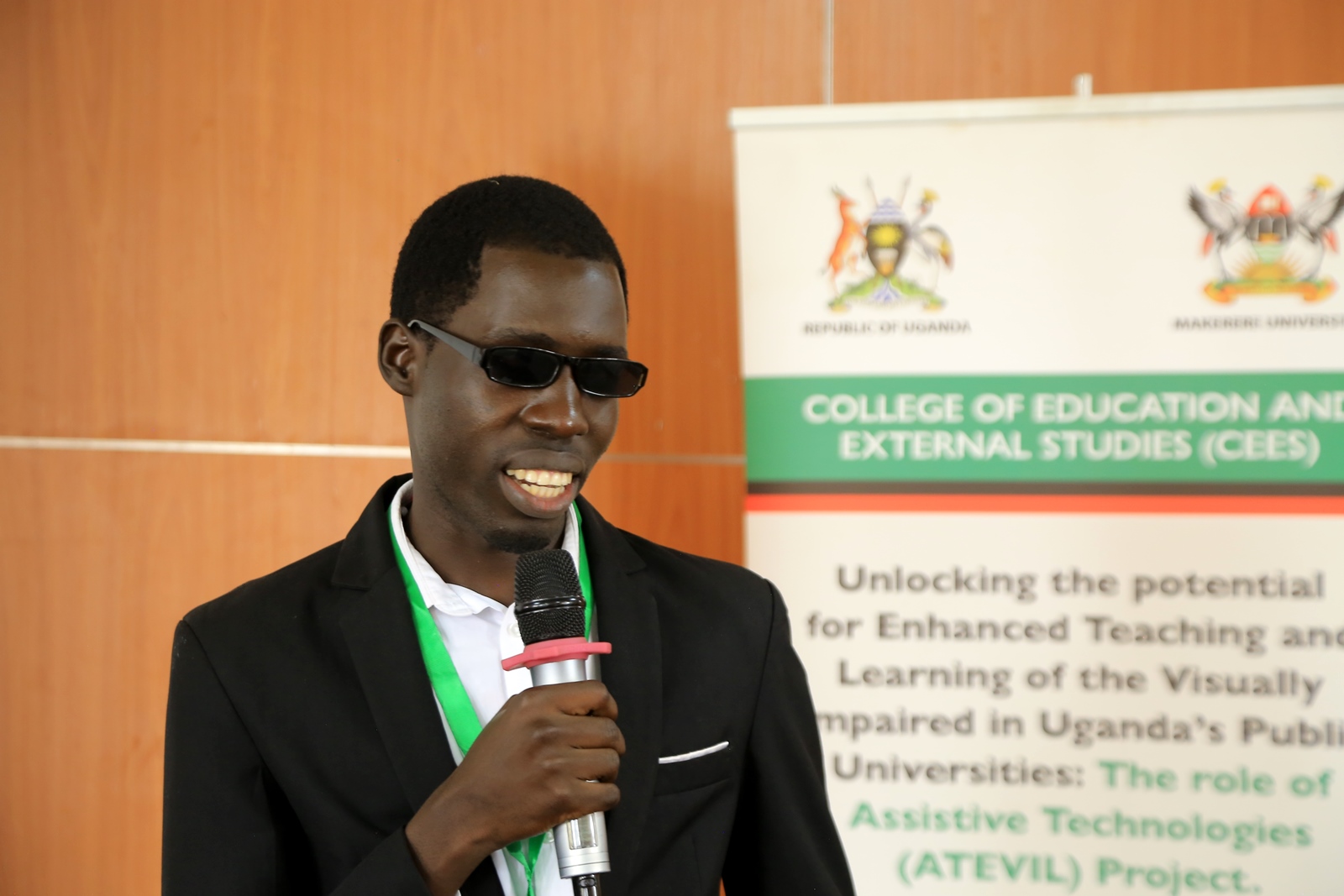
Elaju who works at Equity Bank said: “Using Jobs Access to With Speech (JAWS) Screen reader in computers which could enable the visually impaired students to use computers at ease, made a significant difference in his learning journey and career.”
He expressed gratitude for the training he received, which enabled him to outshine competitors during job interviews, notably at Equity Bank, where he secured a job. Elaju described his commitment to sharing knowledge with peers. “I mobilized my colleagues to ensure resources are accessible as well as helping them submit coursework.”
Noting that many employers were not aware of the capabilities of visually impaired individuals, Elaju urged the ATEVIL project and other stakeholders to continue with the advocacy and awareness at the different levels.
Trevor Twinomugisha Makuru, a second-year student at Kyambogo University and beneficiary of the ATEVIL Project, shared his impactful journey, emphasizing the project’s role in enhancing awareness among students with visual impairments. “Joining Kyambogo was challenging as a private student with low vision,” he noted, reflecting on the initial difficulties he faced.
He commended the ATEVIL project for providing him with the essential training in assistive technologies, which enabled him to become more independent in his studies. “We were inspired to revive the Kyambogo University Visually Impaired Students Association, where I currently serve as the President,” he stated, underlining their commitment to educating fellow students about these technologies.
Twinomugisha Makuru credited ATEVIL project’s influence towards his transformation. “Our trainings fostered a desire to advocate for inclusivity leading to workshops that educated others about visual impairments,” he reported.
He called for the expansion of such initiatives, advocating for inclusivity in spaces such as museums, where visually impaired students could also benefit from accessible learning experiences.
Latif Lugudo, an alumnus of Kyambogo University and beneficiary of the ATEVIL Project, shared his inspiring journey, emphasizing the project’s critical role in his academic and personal development.
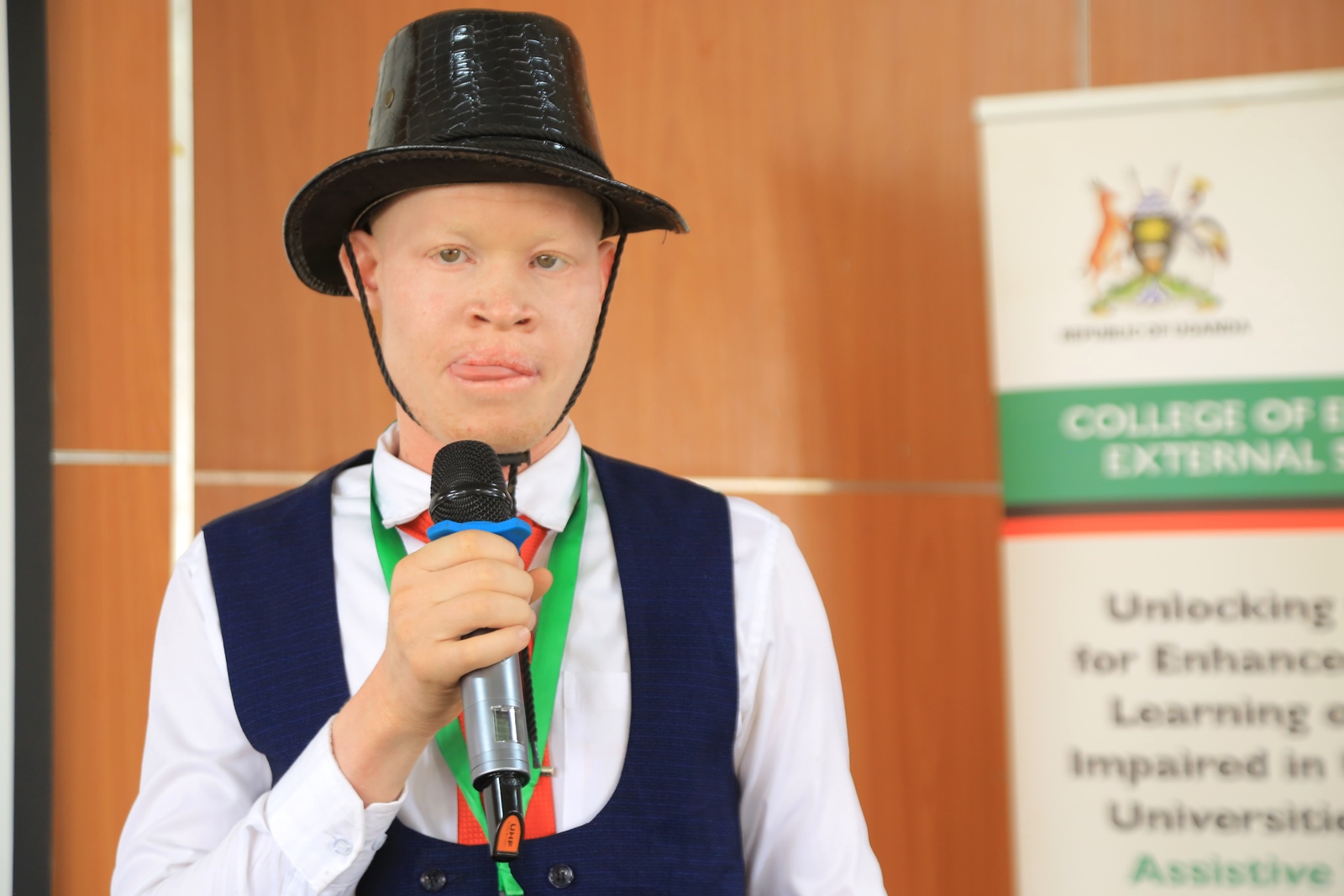
As a person with albinism and vision impairment, Lugudo who works as an Inclusion facilitator at Heifer International underscored the importance of self-acceptance, stating, “You have to accept the impairment you have before moving forward.”
He described the challenges he faced in his academic journey, particularly in a demanding business studies academic program. “At first, I experienced ridicule from classmates, which made adapting difficult,” he highlighted.
However, the trainings from the ATEVIL Project empowered him to engage more actively with faculty, leading to significant changes, including the installation of JAWS software on computers in the lab for visually impaired students.
Closing remarks by Prof. Betty Ezati
Wrapping up, the ATEVIL Project Stakeholders’ Dissemination Workshop, Dr. Betty Ezati, an Associate Professor at the College of Education and External Studies at Makerere University and a member of the research project team called upon stakeholders to strengthen collaboration to uplift learners with special needs in all educational settings.
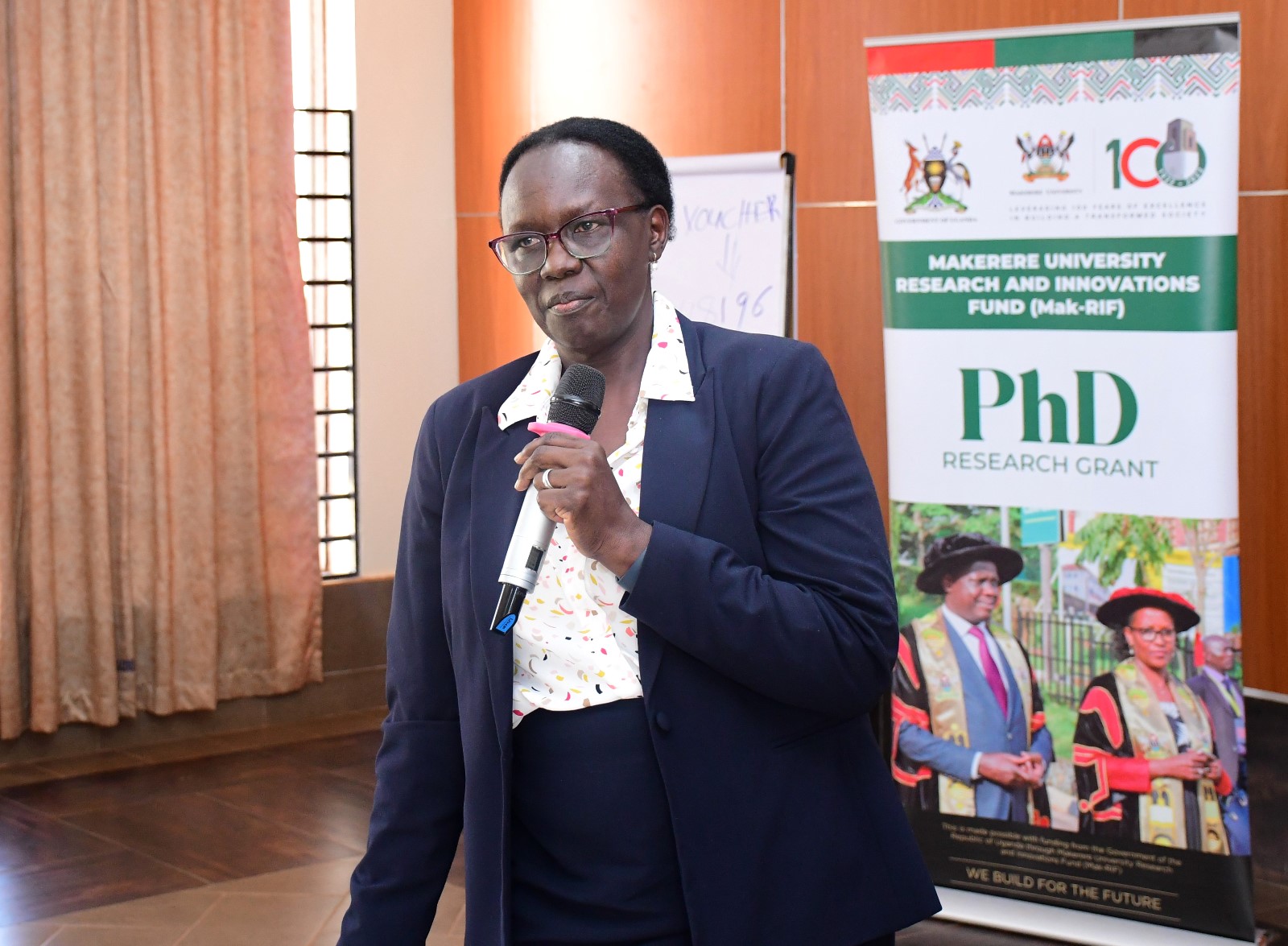
Prof. Ezati emphasized that supporting learners with visual impairments is a collective responsibility. “For a long time, we have left learners with visual impairments to fend for themselves, but now it’s clear that we all have a role to play in making a positive difference in the lives of these students. There is need for targeted support and provision of assistive technologies,” she stressed.
Acknowledging the various stakeholders who participated in the dissemination workshop, Prof. Ezati appealed for continued support and training. “This project is meant to light the fire; we hope it will remain burning,” she stated.
Education
CEES Holds Open Day and Skills Expo to Empower Future Educators
Published
1 month agoon
March 17, 2025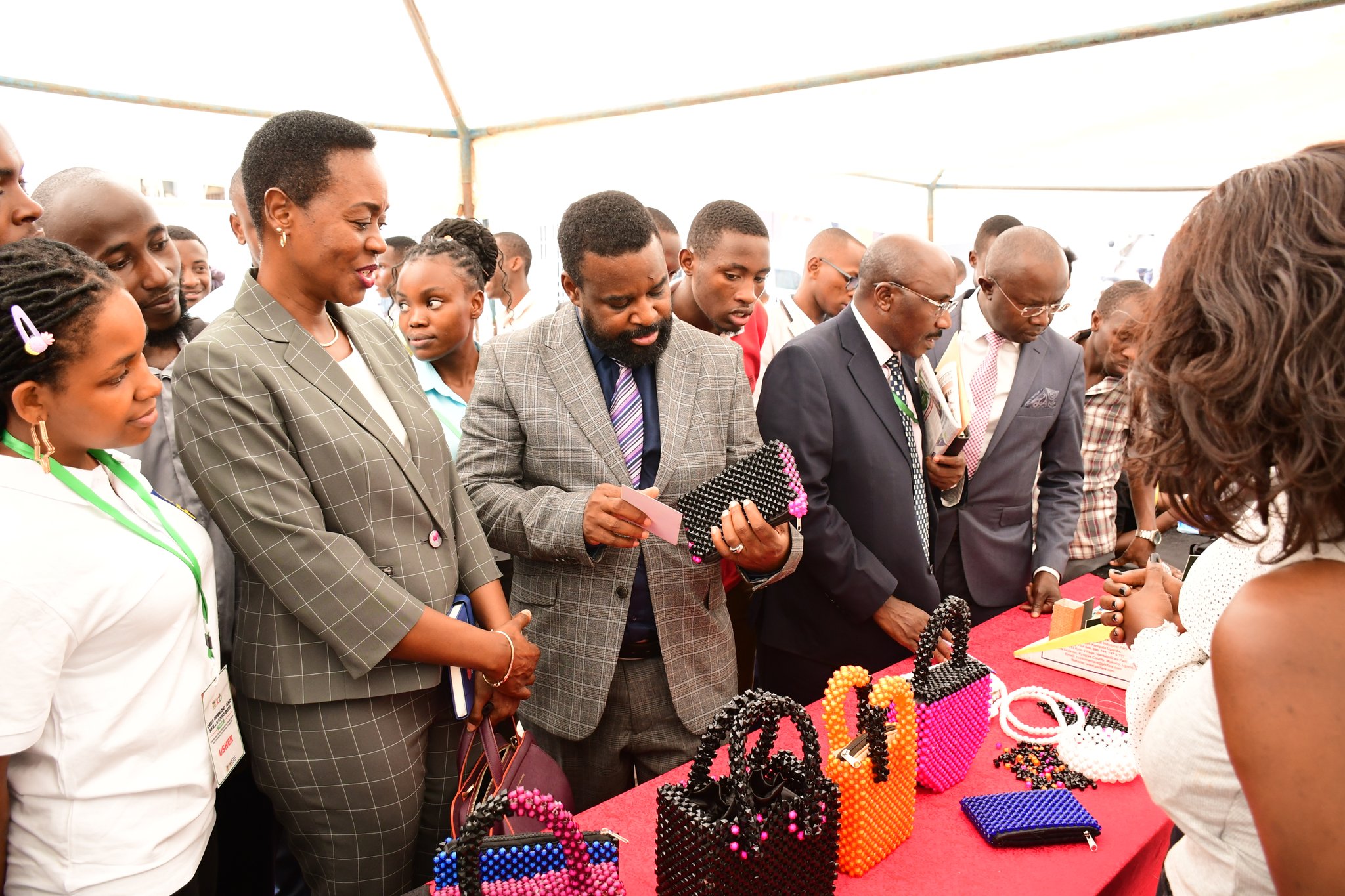
Several students from the College of Education and External Studies (CEES) at Makerere University have showcased different innovations that can be used to train learners in the new competence-based curriculum that has been rolled out across different levels of learning.
These student innovations were presented during the CEES Open Day and Skills Expo held on Friday 14th March 2025 at Makerere University Yusuf Lule Central Teaching Facility Auditorium under the theme: “Empowering Future Educators Through Skills and Innovation for National Prosperity.”
The CEES Open Day and Skills Expo 2025 comes at a time when the Government of Uganda through the Ministry of Education and Sports in partnership with the National Curriculum Development Centre is implementing the new competence- based curriculum. This strategic direction requires both the teachers and the students to embrace the teaching and learning approaches for effective delivery and implementation.
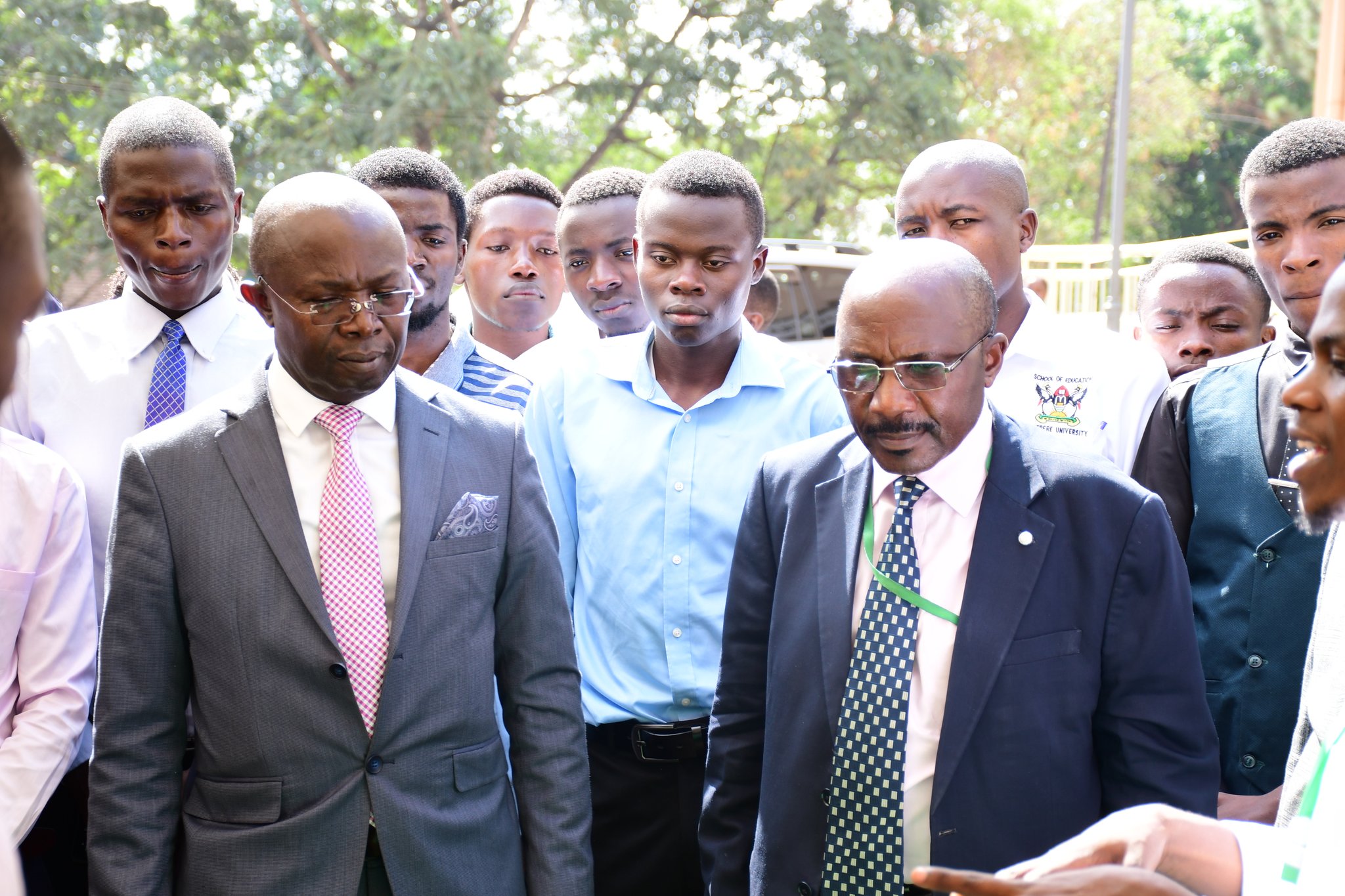
Featuring student presentations and innovations as well as a panel discussion focusing on strategies for adopting the new curriculum, the student-driven event organized by CEES student leaders with the support of the College leadership aimed at equipping education students with practical skills to prepare them for their roles as future educators.
The Vice Chancellor, Prof. Barnabas Nawangwe commended the students and staff for prioritizing innovations and presentations on the new competence-based curriculum. In a speech read by Prof. Robert Wamala, the Acting Director of Research, Innovations and Partnerships, the Vice Chancellor noted that the College of Education and External Studies is mandated to train students who will implement the new competence-based curriculum at the lower secondary, upper secondary and at institutions of higher learning.
“The new competence-based curriculum focuses on equipping learners with practical skills. The College has undertaken strategies to train and produce teachers who can effectively teach students and actively engage them in practical sessions. Makerere University is committed to providing innovative teaching, learning and community engagement. This Open Day and Skills Expo aligns perfectly with our vision of producing graduates who are not only knowledgeable, but also fit for purpose in the evolving job market,” he said.
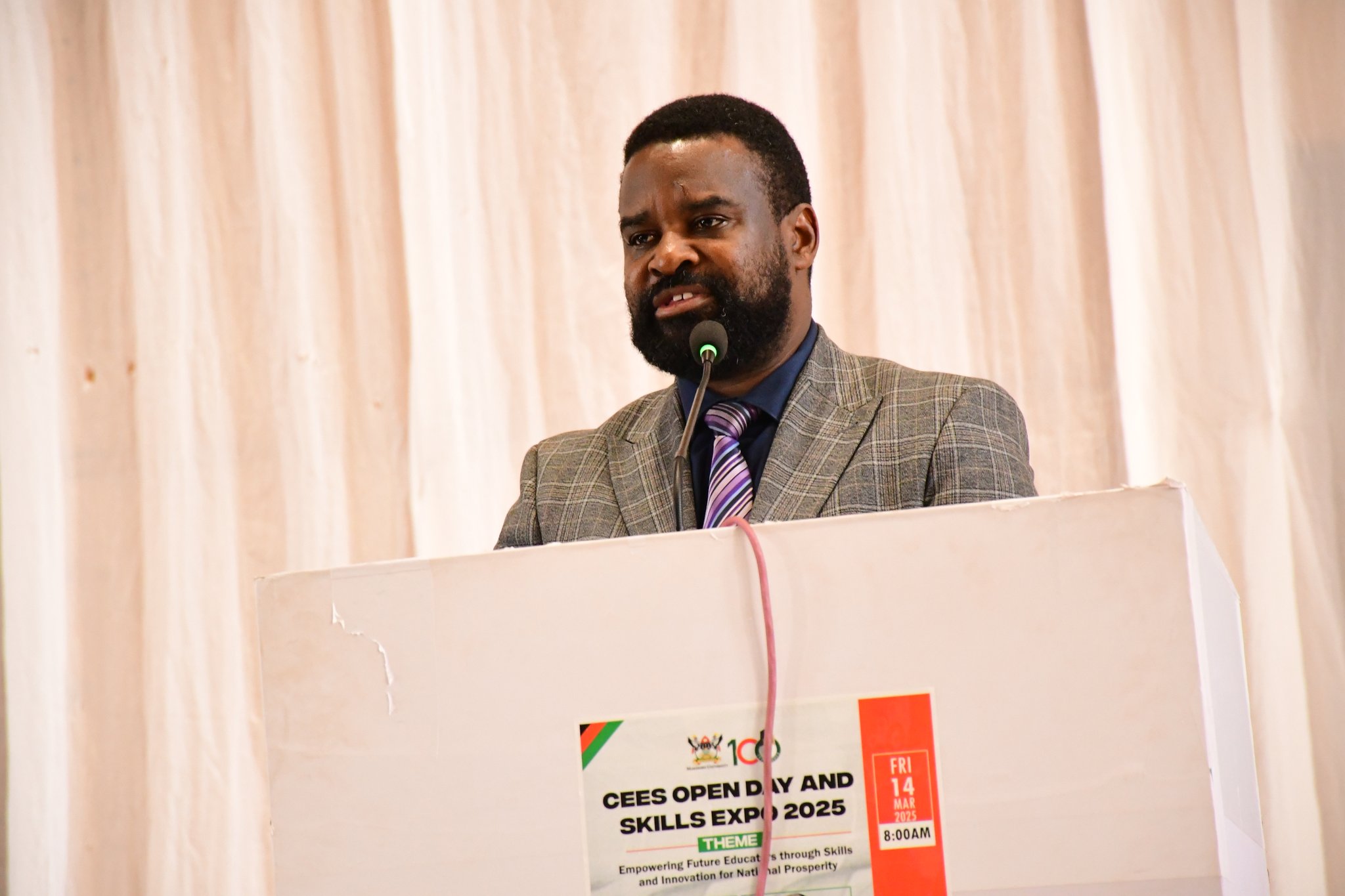
He added: “I must emphasize that there are changing demands in education that go beyond theoretical instructions and indeed require practical and hands-on experiences. I believe that this skills expo serves as a bridge between academia, industry and other key stakeholders. It will help students showcase skills and innovations like we have seen, and explore entrepreneurship and self-employment.”
The Vice Chancellor encouraged students to seize this opportunity to develop more innovations that go beyond simplifying education, to blending an entrepreneurship ideology to create jobs in an economy that is increasingly evolving.
“To our students, this is your chance to demonstrate your capabilities, learn from others, but also take both steps towards building your future careers. It is possible that you can look at yourself as a teacher, but allow me to remind you that you can as well look at yourself as an entrepreneur, innovator and business person. So, size this opportunity to diversify your skills and make meaningful connections,” he guided.
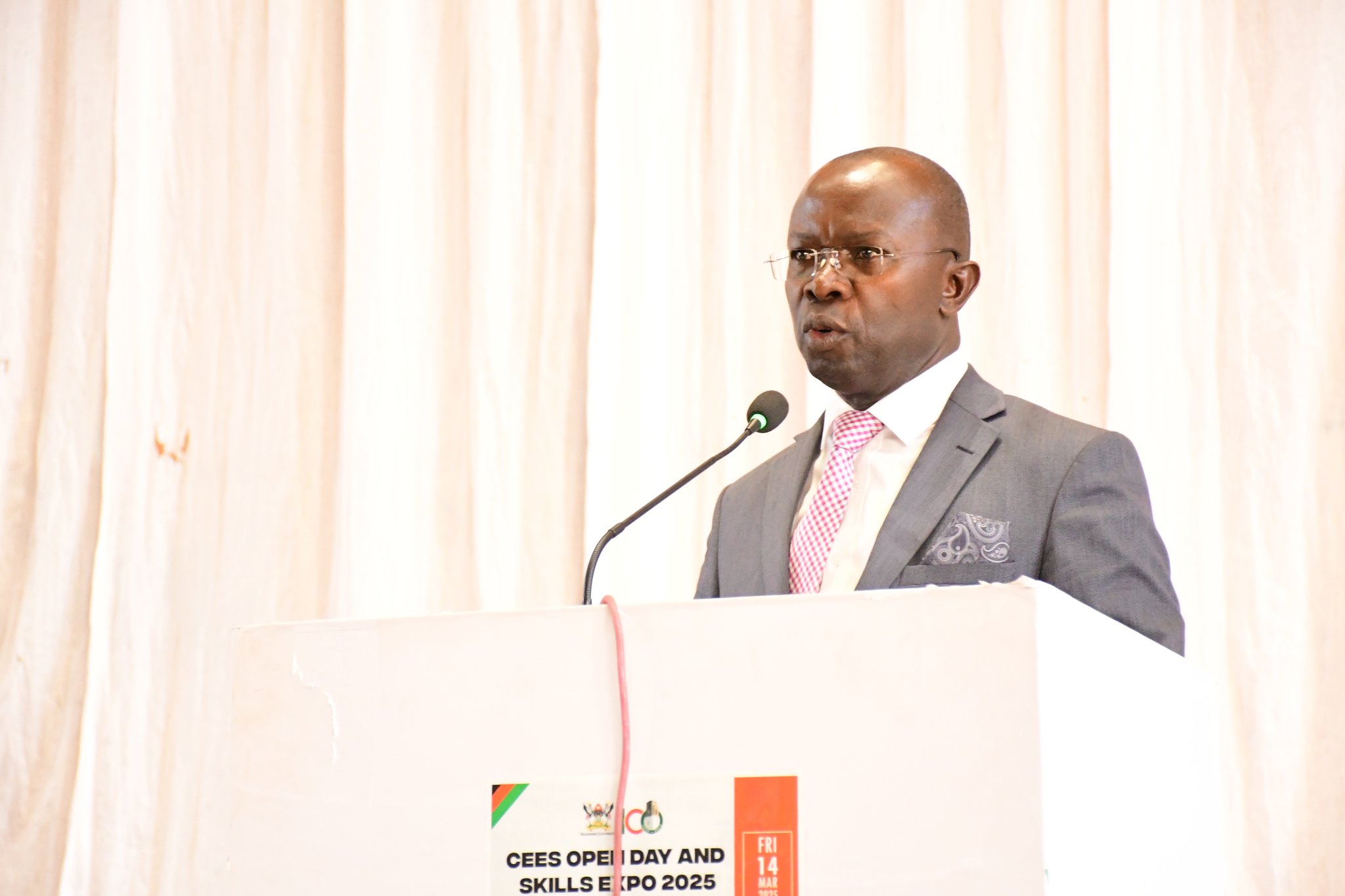
On behalf of Prof. Anthony Mugagga, the Principal of the College of Education and External Studies, Dr. Muhammad Kiggundu described the event as a clear demonstration of Makerere University‘s commitment to preparing students for the new competence-based curriculum.
“We are delighted that our students have organized this event in an effort to transition to a skills-based curriculum. Our students represent a group that embraces innovative teaching and learning approaches, and are ready to continue learning and sharing,” he said.
“The College of Education and External Studies is working with the National Curriculum Development Centre to ensure the effective delivery of the competence-based curriculum at the Secondary School and University levels.
He acknowledged the National Curriculum Development Centre for being an instrumental partner who has organized several workshops that have equipped the staff at the College of Education and External Studies with the 21st century skills required to deliver the new competence based curriculum.
Mr. Wilson Ssabavuma who represented the Executive Director of the National Curriculum Development Centre (NCDC) commended the College of Education and External Studies for undertaking an innovative approach to transform the service teaching force into a competent labour force.
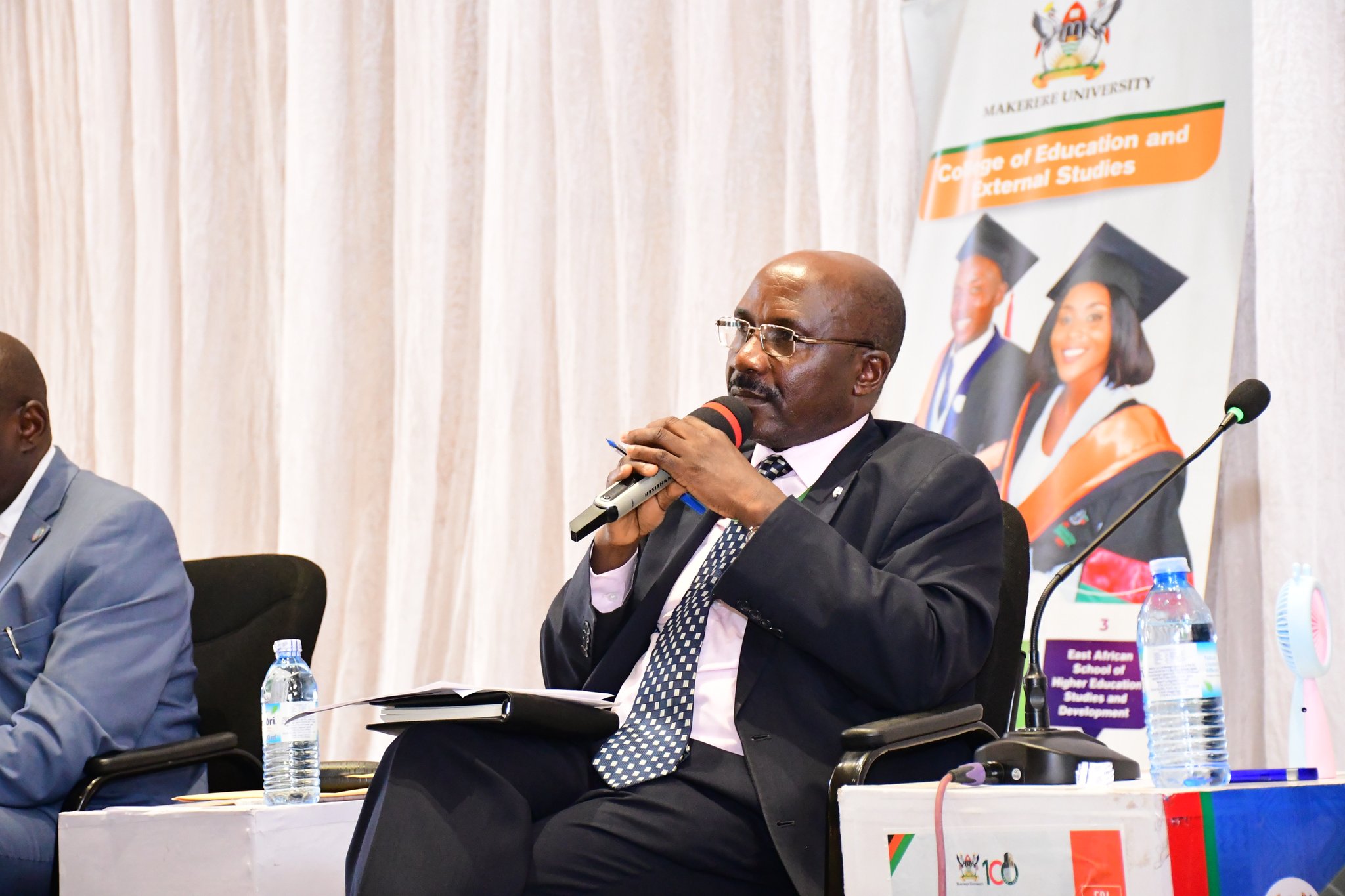
“I take this opportunity to thank the College of Education and External Studies for inviting the National Curriculum Development Centre to witness the steps and strategies undertaken to transform the service teaching force into a competent labour force positioned and ready to deliver the competence-based curriculum,” he said.
“You will agree with me that most of us gathered here are products of the old curriculum. Since the introduction of secondary education in Uganda, it is the first time, we are having major reforms in education following the realisation that we cannot dodge the way of change that is taking place all over the world. We must definitely transform our education to ensure that we remain relevant to the national, regional and global economies,” he stated.
He highlighted that the different stakeholders noted that the only way to produce a competent work force would be through changing the education sector to meet the market demands and the 21st century trends.
“In 2011, we started to revise the old curriculum. In 2020, we rolled out the competence-based curriculum at the Ordinary level. This year, we have done the same to the Advanced level curriculum,” Mr. Ssabavuma added.
He disclosed that when the NCDC rolled out the new curriculum, it became problematic not only to students, but also to the teachers at the different levels. To address this challenge, mindset change approaches and a number of initiatives including capacity building workshops were implemented to onboard the different stakeholders.
“Teacher educators have to be responsive to the ongoing changes in the local, regional and global trends so that we train human resources that is suited to the task. I am happy to note that the staff and students at the College of Education and External Studies have embraced the competence-based curriculum. I am particularly pleased to see that you have come up with home grown innovations. This attempt is very useful and we commend you for that initiative,” he said.
Ms Anyango Oliver, one such innovator, built an innovation that explains the different types of unemployment. Her innovation describes what unemployment is, and different types of un employment including structure and cyclical unemployment.
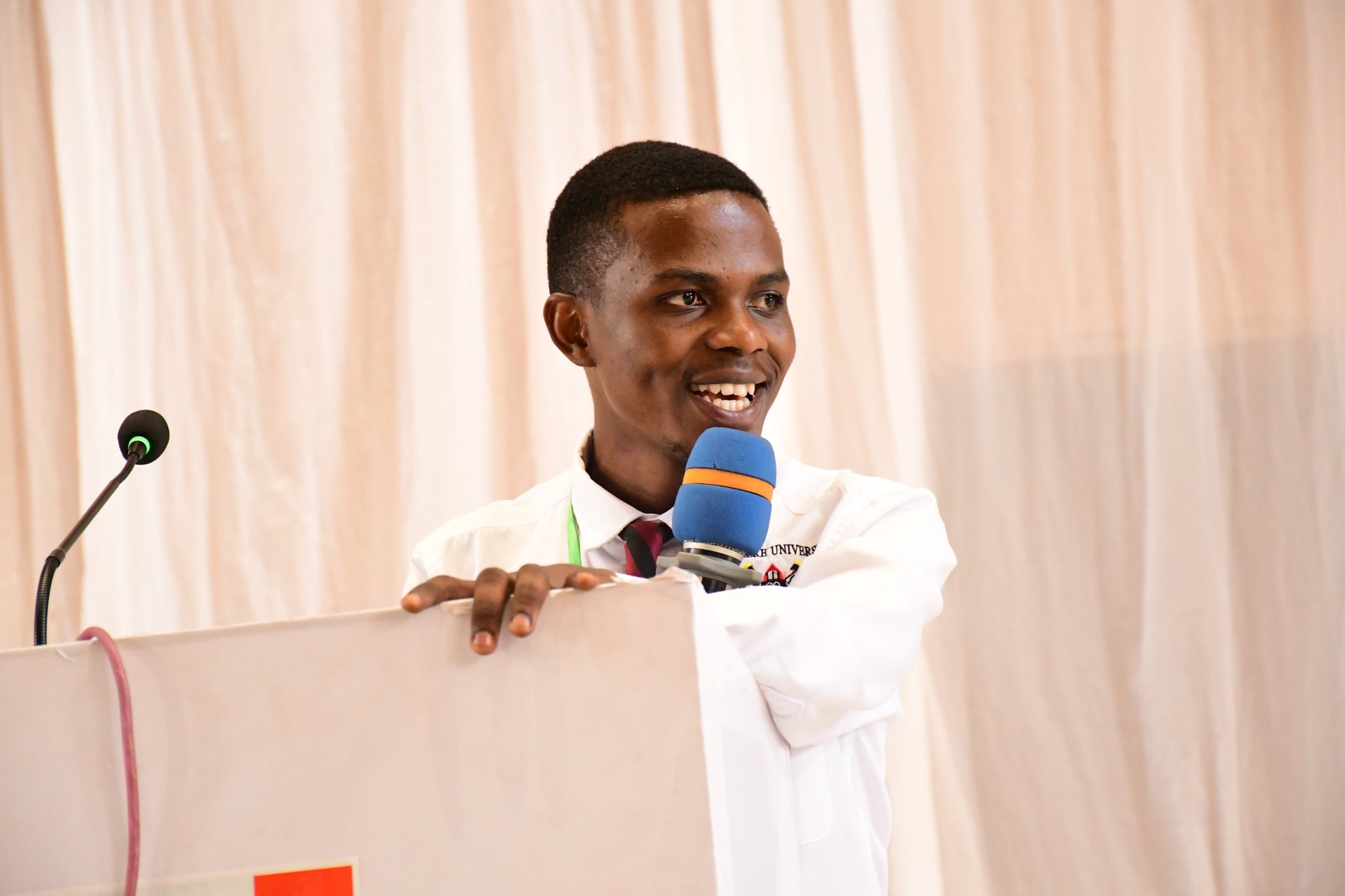
Her innovation further identifies the causes of these types of unemployment, effects of unemployment to individuals and the society, and suggest solutions to these kinds of unemployment.
Ms Anyango believes such a model of looking at employment, if adapted, can be solution-based because it identifies the problem, its causes, and also outlines possible solutions.
Mr. Richard Nizeyimana, a Student Leader at CEES thanked students for actively participating in Open Day and Skills Expo. He emphasized that the Expo provided a platform to students to exhibit the innovations in line with the competence-based curriculum. “We have used local materials to make teaching aids that can explain concepts for students. We are solving the problem of teachers going out there in the field and teaching their students’ things that are only based on theory. We want to be on point and effectively deliver the new competence-based curriculum to students both at O and A-level,” he stated.
Trending
-
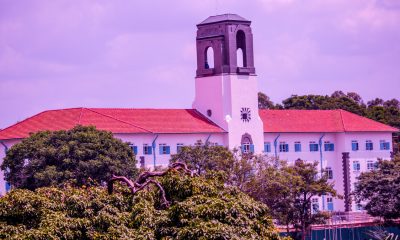
 General2 weeks ago
General2 weeks agoGovernment Sponsorship Undergraduate Admission Lists 2025/26
-

 General1 week ago
General1 week agoApplications for Admission to Undergraduate Programmes 2025/26 AY
-

 General3 days ago
General3 days agoMakerere Alumnus Named 2025–2026 Schwarzman Scholar
-
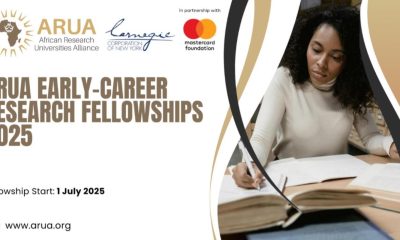
 Research1 week ago
Research1 week agoARUA Early-Career Research Fellowships 2025
-
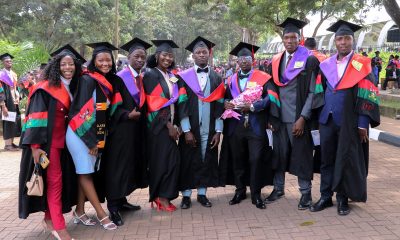
 General2 days ago
General2 days agoAdmission Lists for Diploma Holders under Government Sponsorship for 2025/2026 AY
